|

HOME |
ABOUT | INDEX |
NEWS |
FACEBOOK |
CONTACT
MIDDLE EAST
Arab |
Muslim | Persian
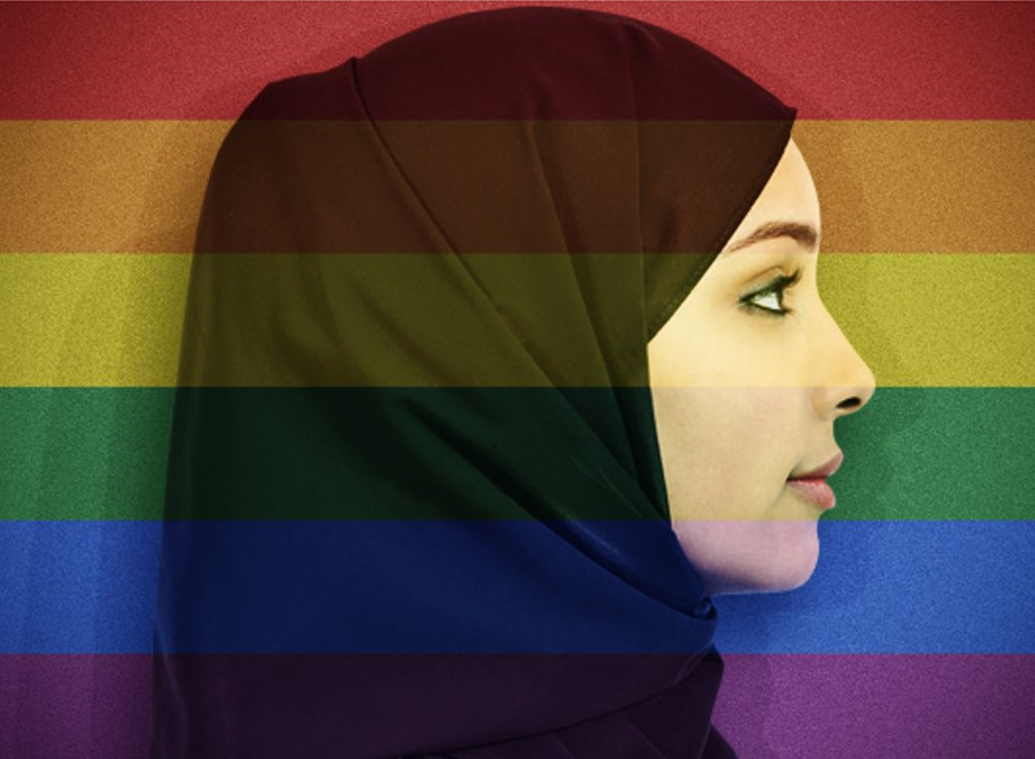
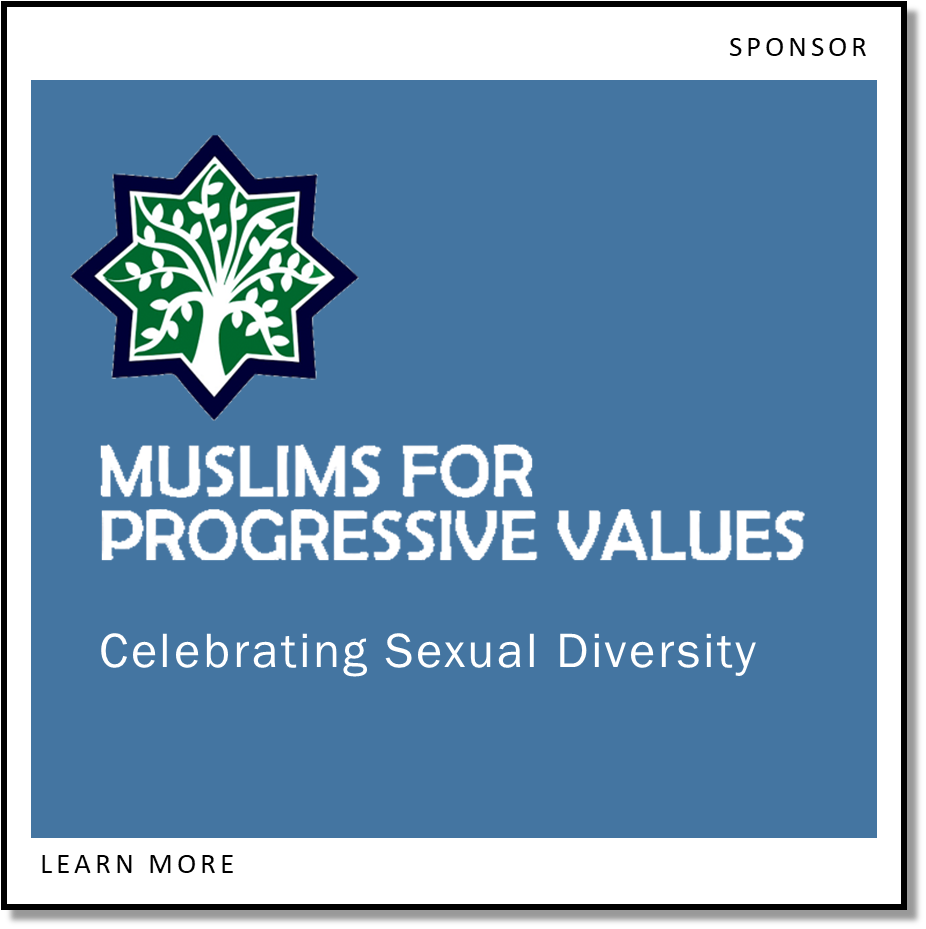
African American|Black
Hispanic|Latinx
Asian|Pacific
Indian|Hindu|Sikh
Jewish|Israeli
European|International

Salaam and
Shalom
Palestinians and Israelis in the Middle East, and here
in America, are seeking to find comfort and hope in
mourning together.
Our hearts
are broken by the brutal Hamas terror attack and by the
onslaught of additional deaths and misery in both the
Israeli and Palestinian communities. Compassionate
people everywhere want to say loud and clear that they
condemn the cruel murder of kids, youths, parents and
grandparents by Hamas. At the same time, they support
the rights of Palestinians to live in peace and with
dignity, just as every human being deserves.
The common citizenry do not start conflicts and engage
in warfare. It is the political leaders and the violent
voices of extremist factions that spread hatred and
fight wars. It is the humanity of the people on both
sides that should stir our compassion.
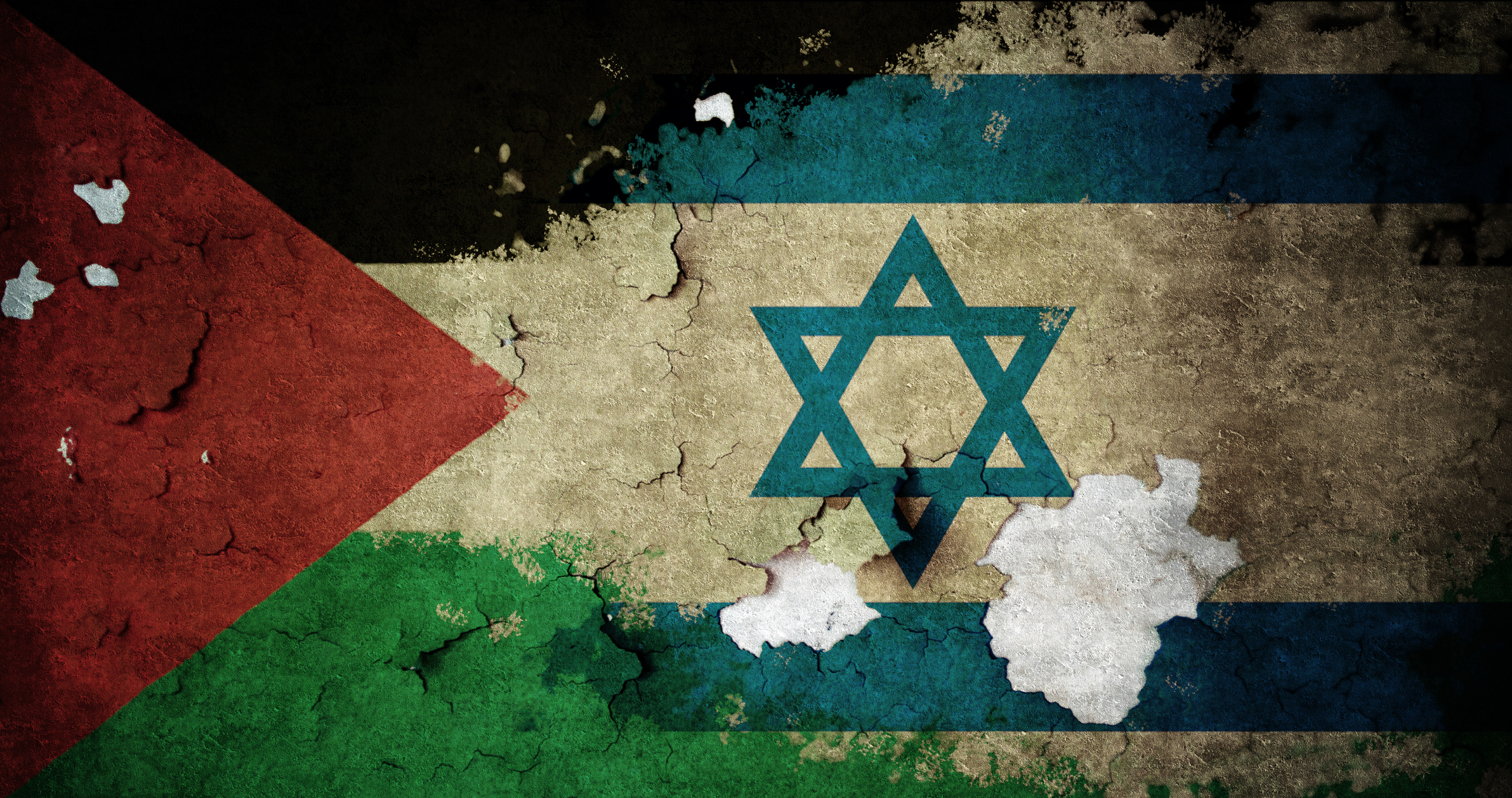
In addition to the tragedy of terrorism and warfare,
there have been painful misunderstandings and simplistic
views of the dreadful conflict in the Middle East. It is
possible to express genuine concern for Palestinian
lives without being anti-semitic. Rational minds will
denounce atrocities committed by both sides.
Arabs and Israelis, Muslims and Jews, are historically
and cultural interwoven. Of course, their close
connection does not mean they agree on all aspects of
this catastrophic situation. But decent people feel
grateful that they can unite around two things... The
value of mourning together the loss of innocent human
life... And the belief that humanity on both sides is
key to breaking the vicious circle created by hate.
So even at
this dark time, we dare to hope that many people still
believe in collective humanity and, instead of
alienating one another, will work to help bring some
light.
CNN: Hamas Attacks Israel, Israel
Responds
Israeli-Palestinian Conflict Tears Into
LGBTQ Jewish Community
Analysis: Israel, Palestine and Us
LGBTQ Groups in Israel Respond to War
Palestinians: LGBTQ Not Welcome Here
BBC: History of the Israel Gaza Conflict
Explained
ABC News: A Look Into the Long History
of the Israeli-Palestinian Conflict
Amnesty International: Israel and
Occupied Palestinian Territories
Overview: Israeli–Palestinian Conflict
United Nations: The Question of
Palestine
Check Out This Jewish-Muslim Gay Couple’s Inspiring
Wedding Album
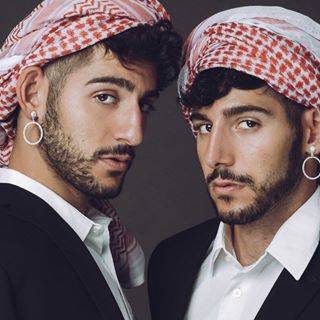
Arab, Muslim,
and Gay
Life can be particularly tough for an LGBTQ person
living in a strict Muslim community. Islamic teachings
forbid homosexuality. Many LGBTQ persons live in fear,
hiding their sexual identity.
Can gays
and lesbians be Muslim? Can Muslims be gay and lesbian?
Of course. Sexuality is who you are, it's not something
you can change and it doesn't have anything to do with
religion. You can't chose sexuality like you can with
religion. Even if one was raised to believe
homosexuality was something wrong or even disgusting, it
wouldn't change your orientation.
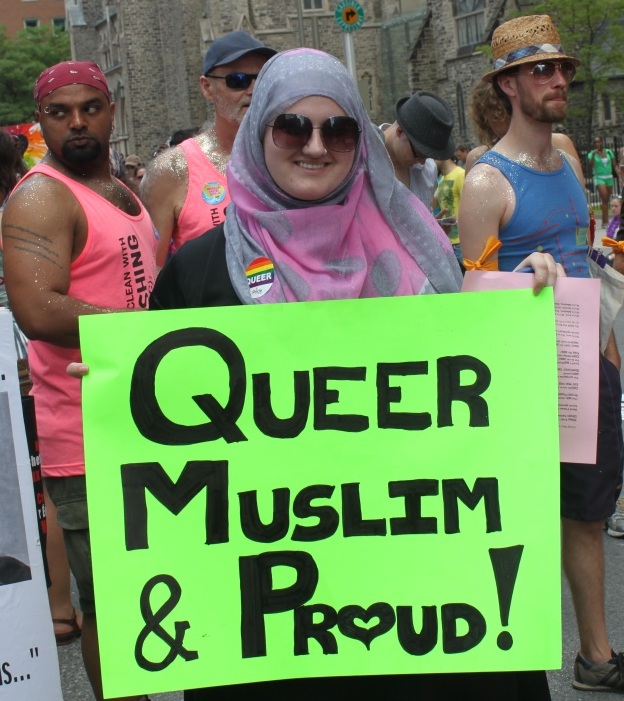
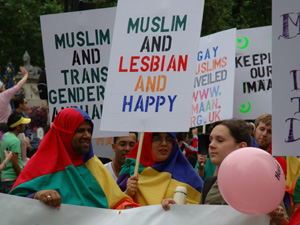
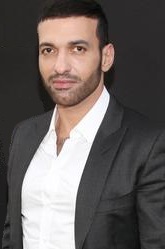
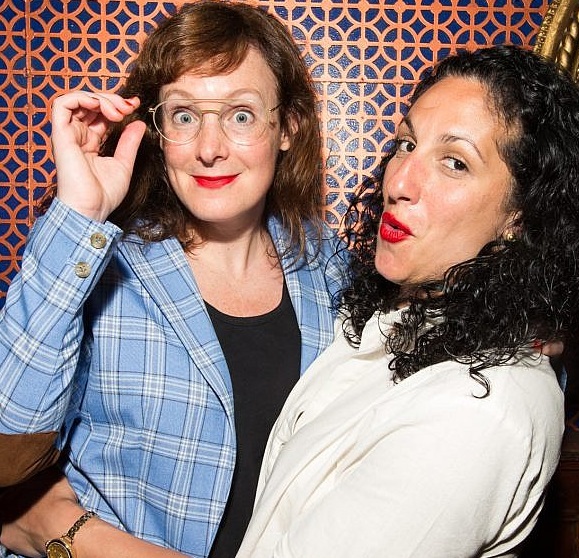
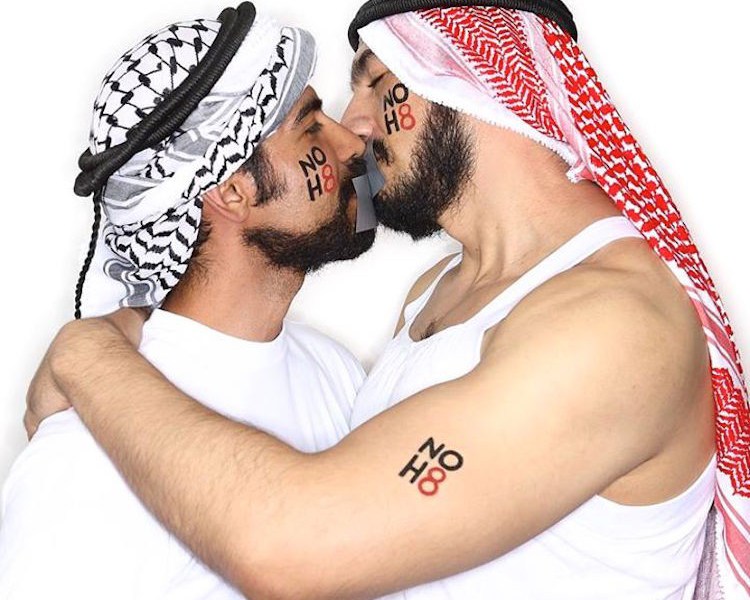
Moroccan Court Sentences LGBTQ Activist to Prison and
Fines for Blasphemy
During Ramadan Month: Queer and
Transgender Muslims Made Their Own Community
Gay Lebanese Boy Hadi Talks About Gay Life in Lebanon
To Be Gay
and Muslim
Middle Eastern, North African LGBTQ Youth
Report High Risk of Suicide Attempts
Al Arabiya News
Growing Up Queer and Muslim Can Be Terrifying: That's
Why I'm Telling My Story
Breaking Fast: Movie About Gay Muslim and Ramadan
Romance
Shireen and Atafeh
Muslim Alliance for
Sexual and Gender Diversity
This
causes a lot of people to suppress their feelings and
hide their true sexuality which can cause a lot of
self-hatred. Some people believe that it is okay to have
homosexual feelings an long as you do not act on them
but this just doesn't work because you can't spend your
whole life pretending to be something you're not.
Unfortunately, in some places, people are still
uneducated and traditional and therefore it can cause a
lot of problems for homosexuals, especially if they live
in Muslim countries.
But
recently, people have become a lot more open and more
Muslims are becoming more open minded about these
things. But what would happen to a gay or lesbian Muslim
completely depends on where they live and what their
family is like. By the tenets of their faith, it's not
possible for Muslim people to be gay or lesbian.
Realistically, of course they can. They should probably
look for a liberal, reformed sect of Islam, if there is
one, that accepts homosexuality, just as many Christian
sects do. But, depending on where they live they may be
accepted or they may be put into prison and killed by
their government and/or their family.
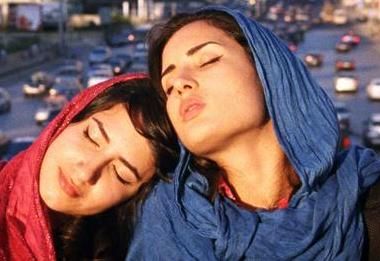
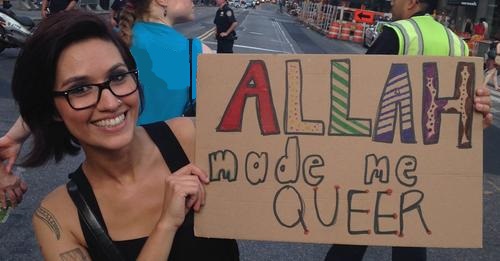
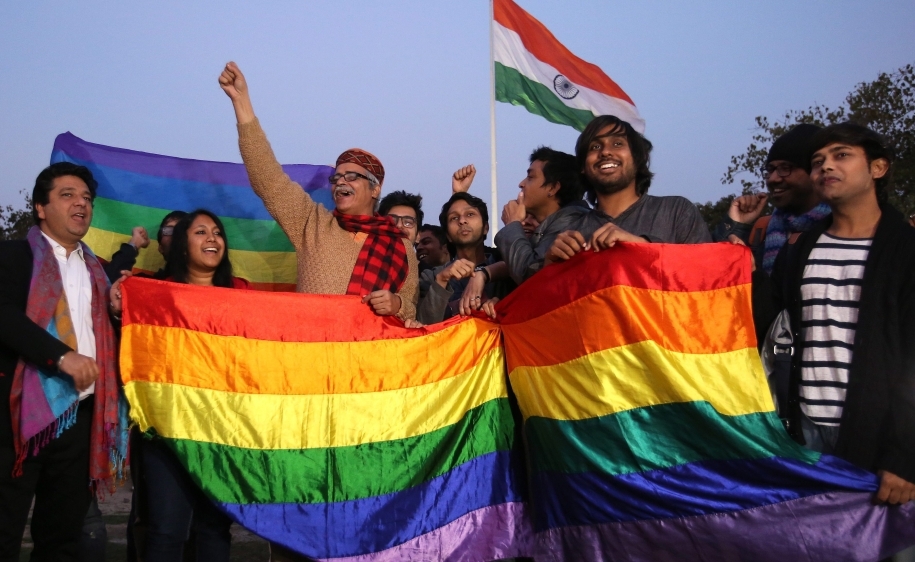

Candid Discussion 1: Extremely Queer Muslims
Pakistan’s First Trans TV News Anchor Marvia Malik
Survives Assassination Attempt
Guardian: Being a Gay Muslim
Married Lesbian Palestinian-Jewish Comedians
HRW: LGBTQ Activism in the Middle East
Muslims for Progressive Values
Check Out This Jewish-Muslim Gay Couple’s Inspiring
Wedding Album
Typical blog comments from Muslim lesbians include the
following:
I am a lesbian and a Muslim living in an Arabic country
and I have a girlfriend. We cannot be public about our
relationship because the law prohibits same sex
relationships. If we are discovered, we can go to jail
because of our relationship. My family does not know
anything nor my friends because it is shameful to us. I
must still follow the traditions because we are in a
country where everything is forbidden.
I have lived all my life in an Arab Muslim country and I
know firsthand how oppressive, judgmental and simply
uptight Muslims can be when it comes to homosexuality.
There are a lot of Muslim lesbians like me and my
girlfriend who are scared about their future but
daydream about having a house and cat or dog but deep
down inside we know this is will never come true. So
sad. I pray 5 times a day. I read Quraan and I'm a good
person and I love my god. I think being gay doesn't make
me a bad Muslim.
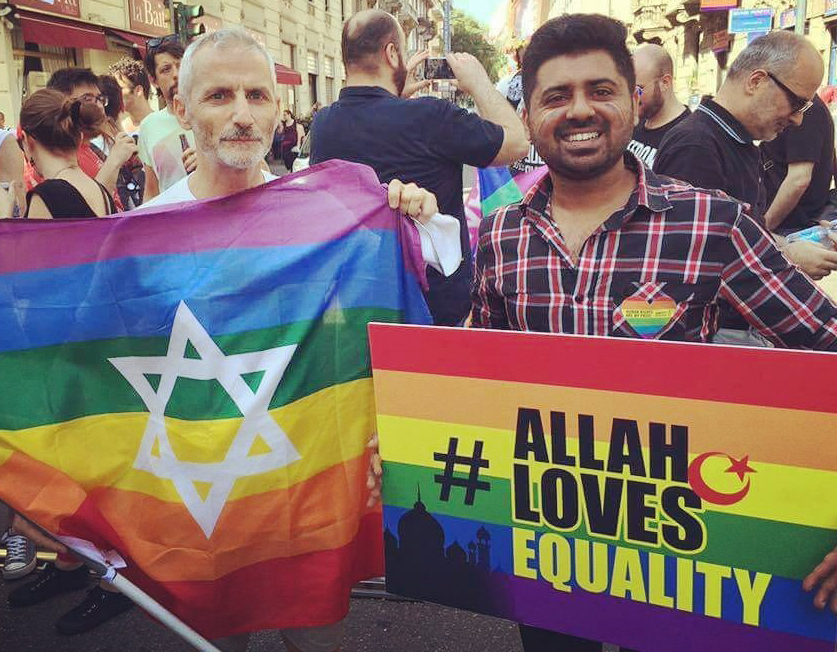
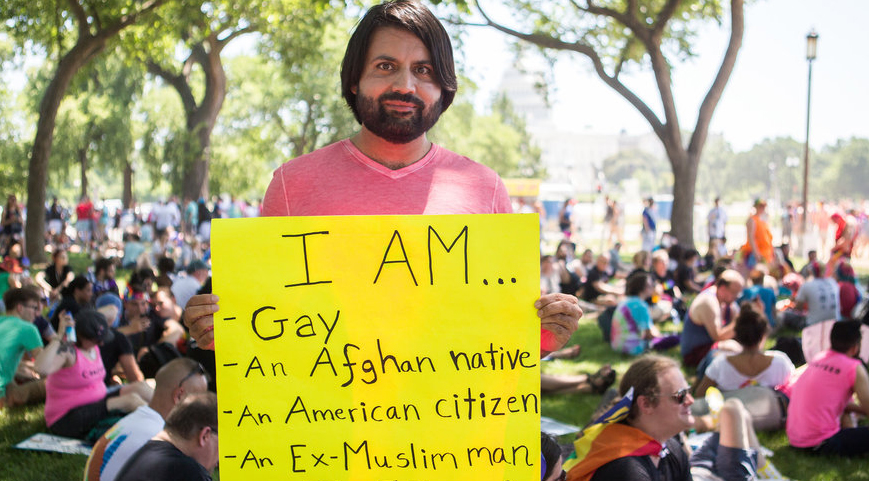

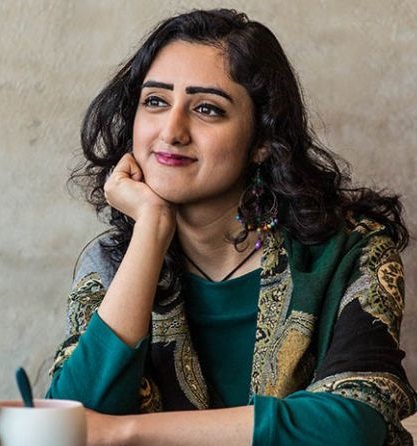
I have been treated very badly because I stand up for
gays or lesbians. The Muslim community doesn't realize
that there are many Muslim gays and lesbians who feel
very scared and lonely and don't know where to turn for
help.
LGBTQ in the Middle East
Arab Weekly: For LGBTQ Arabs Change is Slow
Muslims for Progressive Values
Nadia: Interview With Lesbian Muslim
LGBTQ Comedian: Coming Out to Your Muslim Family
Candid Discussion 2: Extremely Queer Muslims
Muslim Alliance
for Sexual and Gender Diversity
Group Discussion: Islam and Homosexuality
TED Talk: Brown, Queer, Trans, Muslim, Proud
Bisexual Sufi: Fighting Prejudice
Video: What it's Like Being LGBTQ and Muslim
Moroccan Court Sentences LGBTQ Activist to Prison and
Fines for Blasphemy

LGBTQ Arabs and Middle Easterners
Alia
Shawkat - Arab American Actor
Hamed Sinno - Lebanese-American Musician
Dr Nas Mohamed - Qatari LGBTQ Activist
Bashar Murad - Palestinian Singer-Songwriter
Haaz Sleiman -
Lebanese-American Actor
Amin El Gamal -
Egyptian-American
Dalia Al
Farghal - Egyptian
Marwan
Kaabour - Lebanese Artist and Author
Jwan Yosef - Syrian Artist
Abdellah Taia - Moroccan Writer
Omar Sharif Jr - Egyptian Actor
Wentworth Miller - Lebanese and Syrian TV Actor
Wazina
Zondon - Activist
Bilal Baig
- Writer, Actor
Marvia
Malik - Pakistani TV New Anchor
Shaparak
Khorsandi - Iranian-British Comedian
Muslim Alliance for
Sexual and Gender Diversity
During Ramadan Month: Queer and
Transgender Muslims Made Their Own Community
LGBTQ Arabs Who Are Getting Media Attention
Everything You Need to
Know About Being Gay in the Middle East
Video: What it's Like Being LGBTQ and Muslim
Sexy Middle Eastern Men Strip Down for
Arab Heritage Month
Married Lesbian Palestinian-Jewish Comedians
Middle Eastern, North African LGBTQ Youth
Report High Risk of Suicide Attempts
Nadia: Interview With Lesbian Muslim
LGBTQ Muslims Who Are Changing the World
Guardian: Being a Gay Muslim
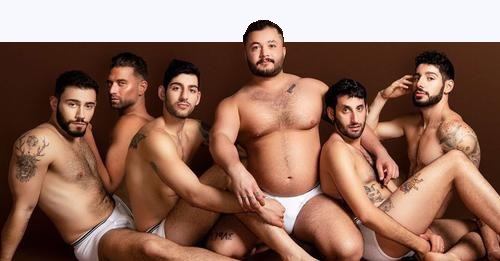
Islamic Influence on the LGBTQ
Community
The Middle East, often characterized by its rich
cultural heritage and diverse societies, also grapples
with complex issues surrounding LGBTQ rights. However,
the landscape for LGBTQ individuals in this region is
heavily influenced by various factors, including
cultural norms, political dynamics, and religious
beliefs—most notably Islam.
Islam plays a significant role in shaping attitudes
towards LGBTQ individuals in many Middle Eastern
countries. Traditional interpretations of Islamic
teachings often condemn homosexual acts, viewing them as
sinful or contrary to religious teachings. This
perspective is deeply ingrained in societal attitudes
and legal frameworks, making it challenging for LGBTQ
individuals to openly express their identities without
facing societal stigma and legal repercussions.
Across much of the Middle East, laws governing LGBTQ
rights are restrictive, with many countries
criminalizing same-sex relationships. Punishments range
from fines and imprisonment to more severe penalties,
including the death penalty in some jurisdictions. These
laws reflect a conservative approach rooted in religious
doctrine and cultural norms.
Beyond legal barriers, LGBTQ individuals in the Middle
East often face pervasive social stigma and
discrimination. Fear of rejection from family, community
ostracization, and even violence can force many LGBTQ
individuals to conceal their identities or live in
secrecy. This stigma is reinforced by societal attitudes
influenced by religious teachings and cultural
traditions.
Moroccan Court Sentences LGBTQ Activist to Prison and
Fines for Blasphemy
Check Out This Jewish-Muslim Gay Couple’s Inspiring
Wedding Album
Sexy Middle Eastern Men Strip Down for
Arab Heritage Month
Video: Queer Arabs Share Their Stories
Gay and Middle Eastern in Post-Orlando America
Saudi Arabian Lesbians
Declare Their Love on TV
Gay-Friendly Arab
Countries
Huge LGBTQ Pride Celebration in the Muslim World
LGBTQ Muslims Who Are Changing the World
A Place for LGBTQ Rights in the Arab World?
Ana Zalameh (I Am a Man) by Bashar Murad
What it's Like to be LGBTQ and Iranian
TV Star Bilal Baig on the Beautiful Blurriness of Queer
Love
Everything You Need to
Know About Being Gay in the Middle East

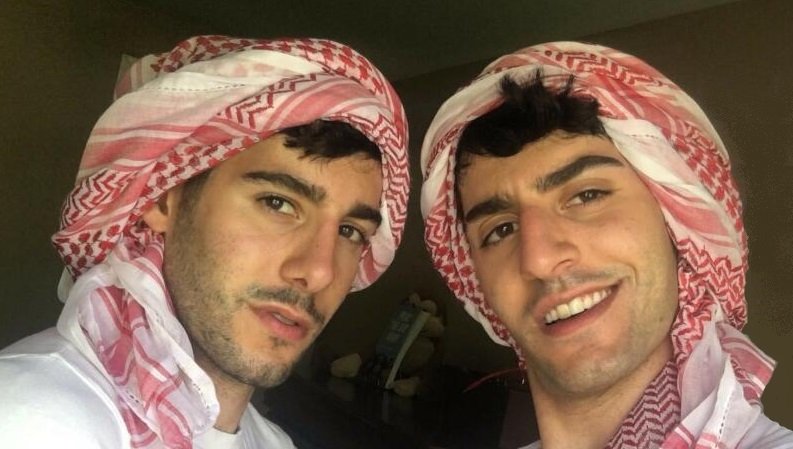
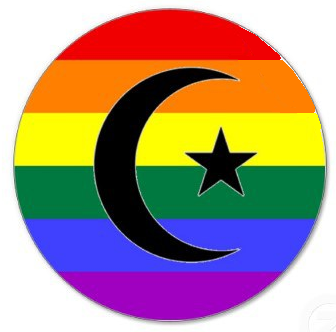
Despite these challenges, there are pockets of activism
and progress within the region. LGBTQ advocacy groups
and individuals are working tirelessly to challenge
discriminatory laws, promote awareness, and provide
support for marginalized communities. However, these
efforts are often met with resistance from conservative
elements within society and face significant obstacles
in effecting systemic change.
It's essential to recognize that LGBTQ issues intersect
with other forms of oppression and marginalization,
including those based on gender, race, religion, and
socioeconomic status. For example, LGBTQ individuals who
belong to religious or ethnic minority groups may face
compounded discrimination and face unique challenges in
navigating their identities.
Addressing LGBTQ issues in the Middle East requires a
multifaceted approach that acknowledges the
intersectionality of identities and challenges deeply
entrenched societal norms. Promoting dialogue, fostering
understanding, and advocating for legal reforms are
crucial steps towards creating more inclusive and
accepting societies. Additionally, engaging with
religious leaders and promoting interpretations of Islam
that emphasize compassion and tolerance can help shift
attitudes towards LGBTQ individuals.
LGBTQ issues in the Middle East are complex and deeply
intertwined with religious and cultural dynamics,
particularly influenced by Islamic teachings. While
progress may be slow and incremental, efforts to
challenge discrimination, promote acceptance, and
protect the rights of LGBTQ individuals are vital for
fostering more inclusive and equitable societies in the
region.
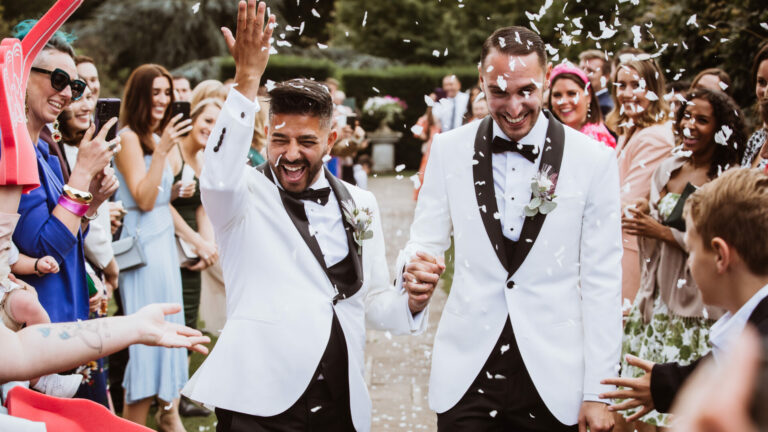
Moroccan Court Sentences LGBTQ Activist to Prison and
Fines for Blasphemy
Iraq Orders Media to Say “Sexual Deviance” When
Referring to Homosexuality
Alex Mohajer Could be First Openly Gay Iranian Man
Elected in the World
Pakistan’s First Trans TV News Anchor Marvia Malik
Survives Assassination Attempt
Married Lesbian Palestinian-Jewish Comedians
LGBTQ Afghans Face Surge of Rape and Torture after
Taliban Takeover
Saudi Arabia is Confiscating Rainbow-Colored Toys in
Anti-LGBTQ Crackdown
Will Humanitarian Aid Reach LGBTQ Afghans in Hiding?
Eternals Actor Haaz Sleiman: Being Arab and Openly Gay
Gay Afghan: The Taliban Killed My
Boyfriend
Virtual Death Sentence: Gay Afghans Brace for Uncertain
Future Under Taliban
Queer Muslims Safely Celebrating Ramadan Under Lockdown
Noor & Layla: Film Celebrating Queer
Muslim Love
Muslim Alliance for
Sexual and Gender Diversity
LGBTQ in the
Middle East
The rights and freedoms of lesbian, gay, bisexual,
transgender, and queer people in the Middle East are
strongly influenced by the prevailing cultural
traditions and religious mores of people living in the
region.
Several Middle Eastern countries have received strong
international criticism for persecuting homosexuality
and transsexuals by fines, imprisonment and death.
However, some of Middle Eastern countries have developed
more tolerant social attitudes and taken some steps to
protect LGBTQ people from discrimination and harassment.
Israel has, since the 1960s, gradually developed more
social tolerance for LGBTQ people, and taken steps to
recognize LGBTQ rights.
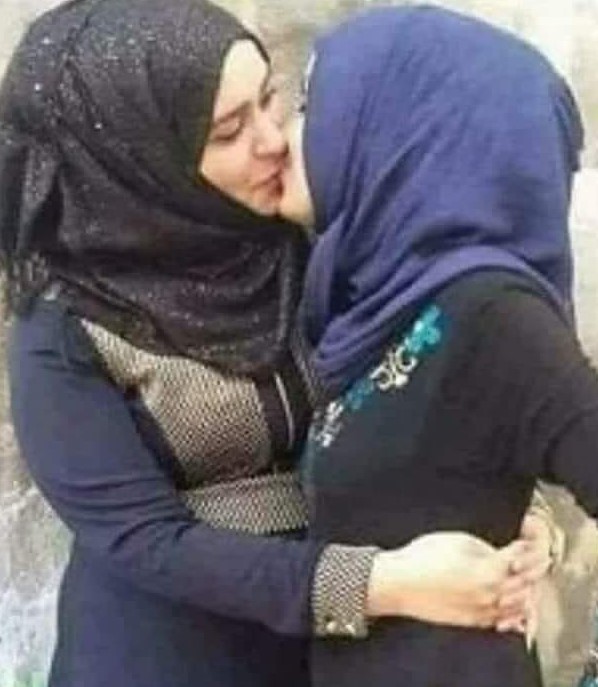
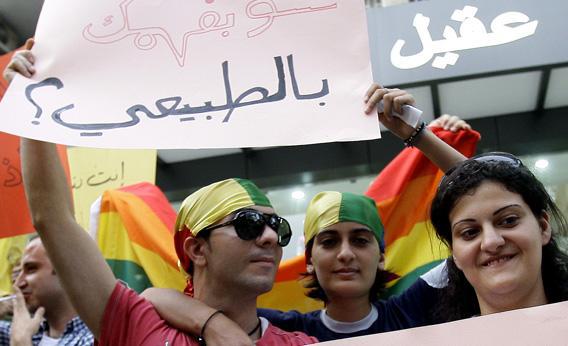
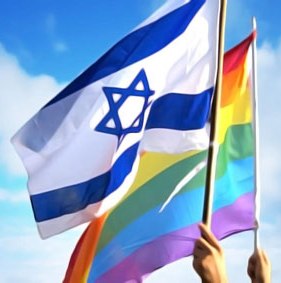
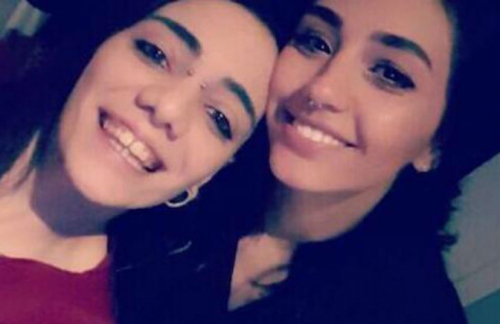
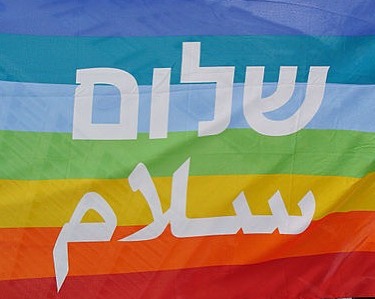
Muslim Alliance for
Sexual and Gender Diversity
Nadia: Interview With Lesbian Muslim
During Ramadan Month: Queer and
Transgender Muslims Made Their Own Community
Group Discussion: Being Gay and Muslim
Check Out This Jewish-Muslim Gay Couple’s Inspiring
Wedding Album
PBS Video: Queer and Muslim in America
Sexual Diversity in Islam
Social Stigma of Growing Up Queer and Arab
Oriented: Documentary Film Focused on Queer Middle East
The Real Story of the Gay Middle East
HRW: LGBTQ Activism in the Middle East
Video: LGBTQ Middle Easterners
Jordan, Bahrain and Iraq are some of the few Arab
countries where homosexuality is not illegal.
In some other Middle Eastern nations, including Turkey
and Lebanon, changes in social attitudes and laws have
slowly come about as part of a larger campaign for
greater tolerance, pluralist democracy and respect for
human rights.
Some Middle Eastern nations do not allow a LGBTQ
community or human rights movement to exist. Countries
such as Saudi Arabia, Kuwait, United Arab Emirates
criminalize same-sex sexuality, cross-dressing and any
expressed support for LGBTQ rights.
Some Middle Eastern nations have some tolerance and
legal protections for transsexual and transgender
people, but not for homosexual or bisexual persons. For
example, the Iranian government has approved sex change
operations under medical approval.
An LGBTQ rights movement has existed in other Middle
Eastern nations, including Turkey and Lebanon.
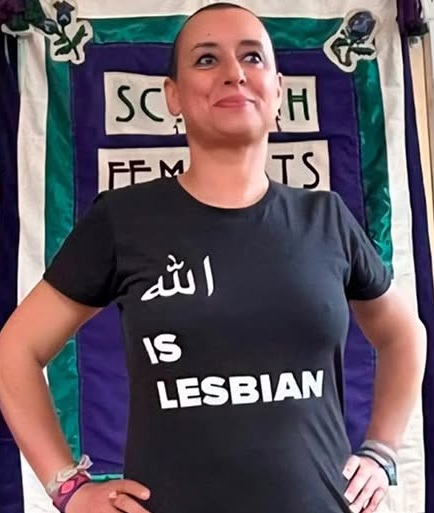 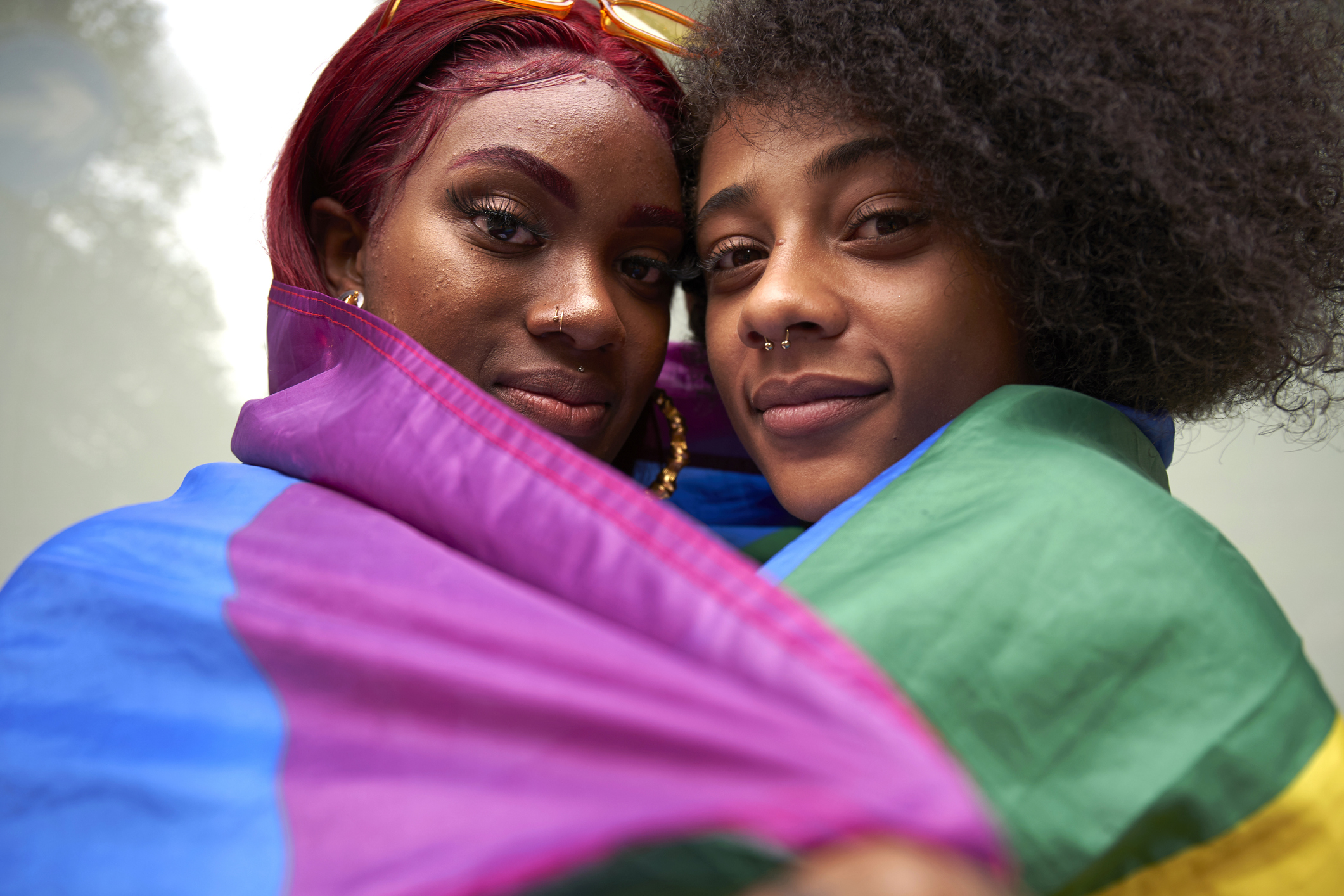
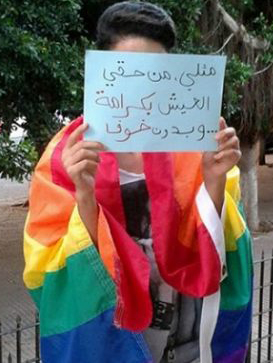
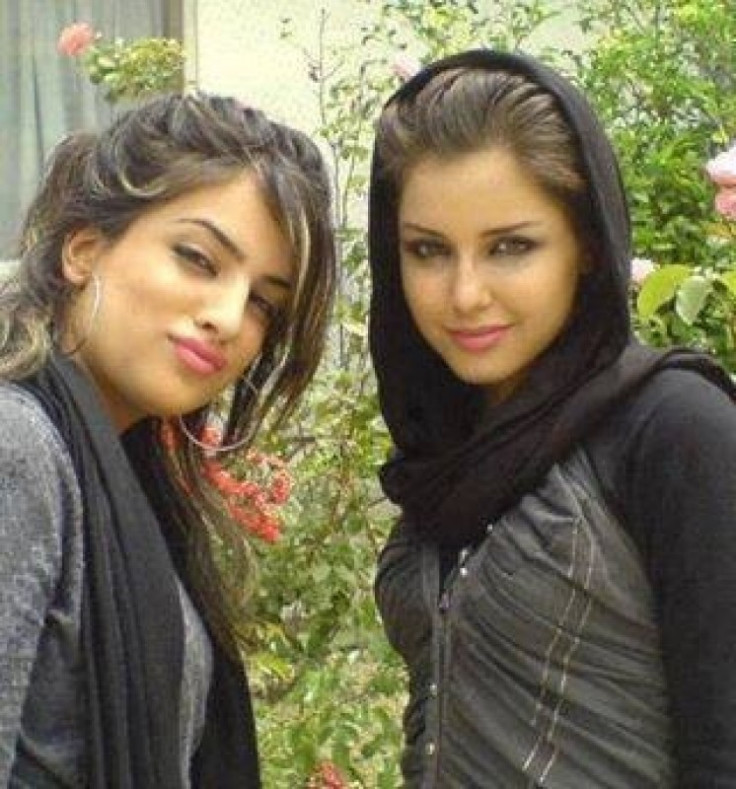
LGBTQ Rights: Israel and Arab Countries
Gay-Friendly Arab
Countries
LGBTQ in Islam
Moroccan Court Sentences LGBTQ Activist to Prison and
Fines for Blasphemy
CNN: What it's Like to be Gay and Muslim
Middle Eastern, North African LGBTQ Youth
Report High Risk of Suicide Attempts
Candid Discussion 3: Extremely Queer Muslims
Lesbian Wedding Anniversary: Hindu/Muslim India/Pakistan
The Dangers of Being Queer in the Middle East
Dalida: Salma Ya Salama
Homosexuality in the
United Arab Emirates
Arab Weekly: For LGBTQ Arabs Change is Slow
Pakistan’s First Trans TV News Anchor Marvia Malik
Survives Assassination Attempt
Embracing
Identity: Being Muslim and LGBTQ
Being both Muslim and LGBTQ can often present challenges
as individuals navigate the intersection of their faith
and sexual orientation or gender identity. While some
may argue that being LGBTQ is incompatible with Islam,
others believe that love and acceptance should prevail,
fostering a harmonious coexistence between religious
beliefs and individual identities. This essay explores
the complexities, struggles, and potential for
acceptance for those who identify as both Muslim and
LGBTQ.
Individuals who identify as both Muslim and LGBTQ often
find themselves at the crossroads of two significant
aspects of their identity. Islam, like many other
religions, adheres to traditional interpretations of
gender roles and sexuality, which may not always align
with LGBTQ experiences. As a result, individuals may
face internal conflicts and external pressures to
conform to societal norms, leading to feelings of
isolation and distress.

Moroccan Court Sentences LGBTQ Activist to Prison and
Fines for Blasphemy
Sexy Middle Eastern Men Strip Down for
Arab Heritage Month
Video: Queer Arabs Share Their Stories
Gay and Middle Eastern in Post-Orlando America
Saudi Arabian Lesbians
Declare Their Love on TV
Muslim Alliance for
Sexual and Gender Diversity
Gay-Friendly Arab
Countries
Gay Dating in the Middle East
Muslims for Progressive Values
Muslim-majority countries and conservative communities
often view homosexuality and transgender identities as
taboo or sinful. Consequently, LGBTQ individuals may
encounter ostracization, discrimination, and even
persecution. The fear of losing family, friends, and
community support can lead some to suppress their true
selves or deny their sexual orientation or gender
identity, causing mental health issues and diminishing
overall well-being.
Many LGBTQ Muslims embark on a journey to reconcile
their faith and identity. This involves seeking
interpretations of Islamic teachings that are more
inclusive and compassionate, while also focusing on the
core values of love, kindness, and acceptance taught by
Islam. Some LGBTQ Muslims find comfort in the notion
that Allah loves and accepts everyone, regardless of
their sexual orientation or gender identity.
Despite the challenges faced, there is an increasing
movement within Muslim communities to promote
inclusivity and acceptance. LGBTQ Muslims and allies are
working to raise awareness and challenge the stereotypes
and prejudices that exist. Support groups and online
communities provide spaces for LGBTQ Muslims to connect,
share experiences, and find solace in their shared
struggles.
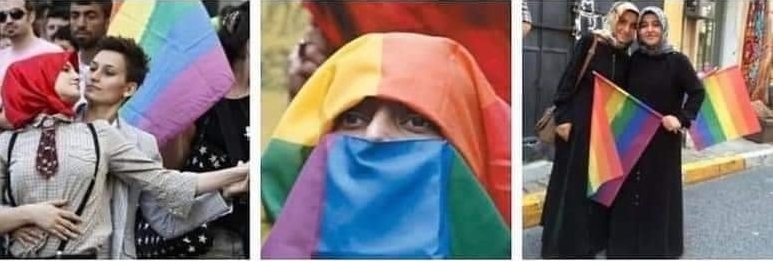
Recognizing that diversity is a divine creation, some
progressive Muslims embrace the LGBTQ community and
strive for acceptance within their faith communities.
They believe that love, empathy, and understanding
should form the basis of a welcoming and inclusive
religious environment where everyone feels safe to be
themselves.
Being both Muslim and LGBTQ can be a challenging
journey, fraught with internal struggles and external
pressures from traditional cultural and religious
beliefs. However, there is hope in the growing movement
for acceptance, understanding, and inclusivity within
Muslim communities. By fostering conversations and
promoting empathy, we can create a world where LGBTQ
Muslims feel empowered to embrace their authentic selves
without compromising their faith. It is essential to
remember that Islam, like any religion, is a diverse and
evolving faith, and embracing diversity is a testament
to the strength of our faith and our commitment to love
and compassion for all.
Huge LGBTQ Pride Celebration in the Muslim World
LGBTQ Muslims Who Are Changing the World
A Place for LGBTQ Rights in the Arab World?
Ana Zalameh (I Am a Man) by Bashar Murad
What it's Like to be LGBTQ and Iranian
TV Star Bilal Baig on the Beautiful Blurriness of Queer
Love
Everything You Need to
Know About Being Gay in the Middle East
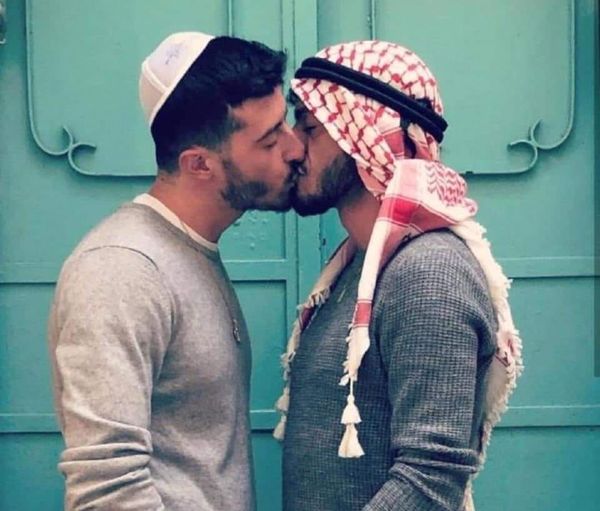
Israel and Arab
Countries on LGBTQ Rights
Should
society accept homosexuality? In America, where the US
Supreme Court decided to recognize same-sex marriages ,
60 percent of respondents to a Pew Research Center
survey said “yes” and 33 percent said “no.” But in most
of the Middle East, the issue of LGBTQ rights isn’t
likely to spark the spirited debate that it does in the
US.
Arab countries including Egypt, Jordan, Tunisia, in
addition to the Palestinian territories, all had more
than 95 percent of respondents answer "no" to the same
question in the Pew survey. But then there are Israelis,
who, although divided in their attitudes, are undeniably
more accepting of the LGBTQ community than their Arab
neighbors. Forty-seven percent of Israelis responded
"no" to whether society should accept homosexuality, and
40 percent responded "yes."
Israel is an oasis in an otherwise-barren Middle East
for LGBTQ rights. A number of Palestinian LGBTQ
individuals who experience persecution seek asylum in
Tel Aviv, a city that hosts its annual Gay Pride parade
attracting more than 100,000 people, and was voted “Best
of Gay Cities 2011” in an American Airlines survey.
[Source: Outward Magazine, Alina Dain Sharon]
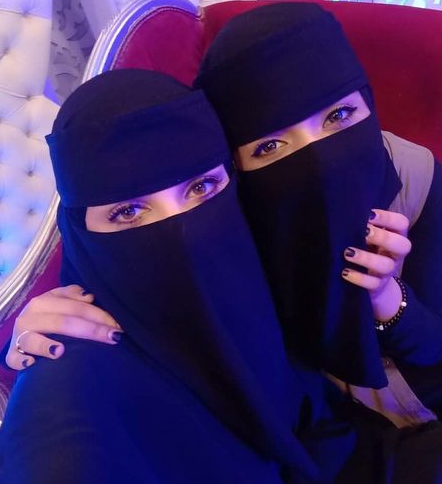

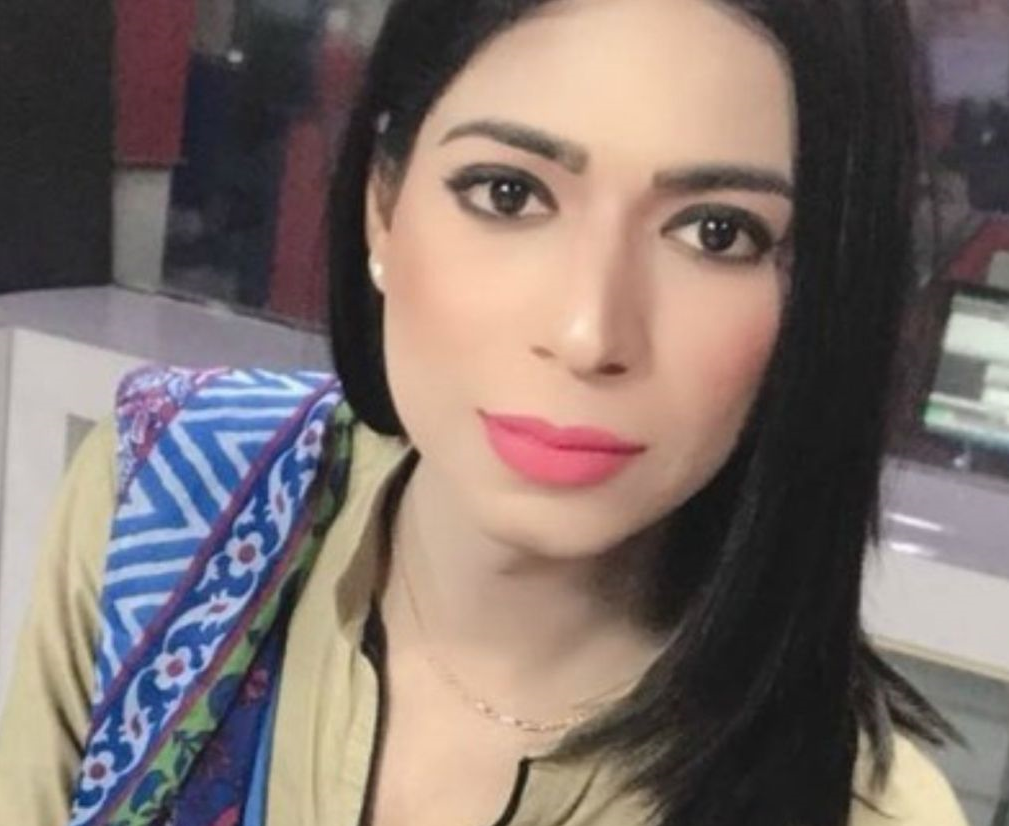
Queer Muslims Safely Celebrating Ramadan Under Lockdown
Video: Queer Arabs Share Their Stories
Gay and Middle Eastern in Post-Orlando America
During Ramadan Month: Queer and
Transgender Muslims Made Their Own Community
LGBTQ Arabs Who Are Getting Media Attention
A Place for LGBTQ Rights in the Arab World?
Dalida: Salma Ya Salama
Gay-Friendly Arab
Countries
Huge LGBTQ Pride Celebration in the Muslim World
What it's Like to be LGBTQ and Iranian
Everything You Need to
Know About Being Gay in the Middle East
Video: What it's Like Being LGBTQ and Muslim
Nadia: Interview With Lesbian Muslim
Sexy Middle Eastern Men Strip Down for
Arab Heritage Month
Group Discussion: Being Gay and Muslim
PBS Video: Queer and Muslim in America
Bashar Murad: Gay Palestinian Pop
Singer
Bashar
Murad (born 1993) is a Palestinian singer-songwriter and
video artist based in East Jerusalem. His music
addresses societal norms, the Israeli Occupation, and
gender equality in the Middle East.
Murad was
born in East Jerusalem. His mother's name is Fadia
Daibes and his father is Said Murad, the founder of the
Palestinian musical group, Sabreen, the first
alternative Palestinian musical group. The band was
founded in 1980 and Murad was born during the height of
their career. This is one reason why for him music was
always part of his identity and a means to escape from
reality. Music helped him to overcome the pressure from
growing up in an occupied territory and growing up
homosexual in a conservative society.
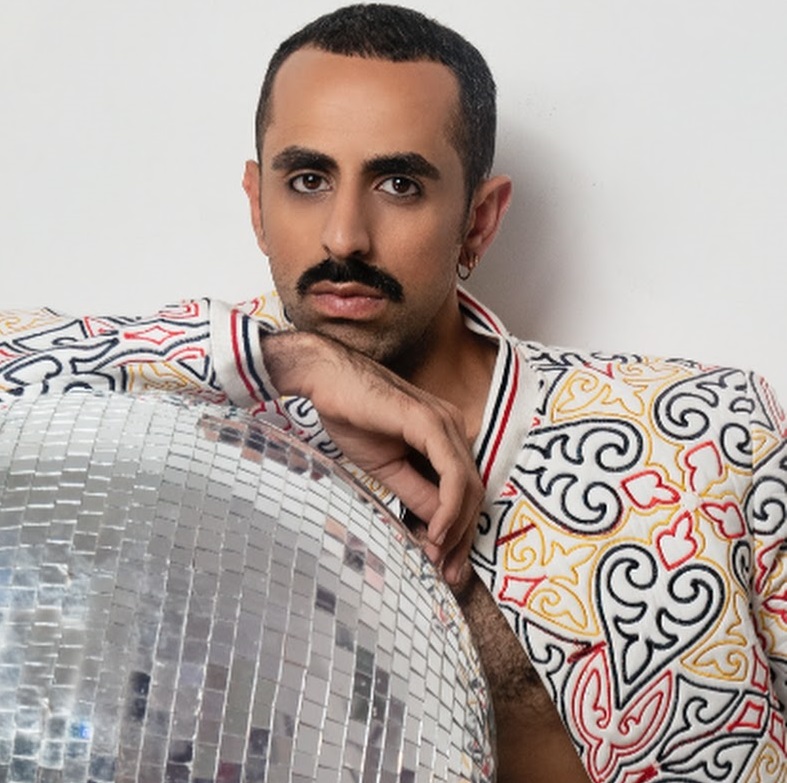
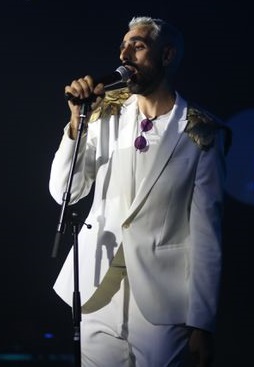
Meet Bashar Murad: Palestinian Singer Blurring Gender
Lines
Palestinian Pop Singer Faces Threats to Make Music with
a Message
Ana Zalameh (I Am a Man) by Bashar Murad
Gay Palestinian Pop Singer Bashar Murad Keeps Dreaming
Big
Palestinians Divided Over Cancellation of Concert by Gay
Singer
Murad
started his career by uploading cover versions of
popular songs on his YouTube channel which he created in
2009. Later, he added a Middle Eastern touch to the
songs by using typical instruments in his covers before
he started creating his own songs.
The majority of his songs are produced by himself in the
local record studios of Sabreen Association for Artistic
Development. Occasionally, Murad gets grants or other
support by organizations and programs such as the
Culture Resource Production Awards Program that enabled
him to realize the song "Shillet Hamal (Bunch of Bums)".
The song is about the feeling of being different and not
fitting in. The music video features several people that
chose alternative paths of life and thus, can understand
this feeling.
Upon graduating from the Jerusalem American School, he
pursued his Bachelor's degree at Bridgewater College, VA
In the US, he realized that not a lot of his co-students
knew much about Palestine, yet they wanted to know more
about it. This made him realize that he does not want to
escape the politics and started covering these issues in
his music.
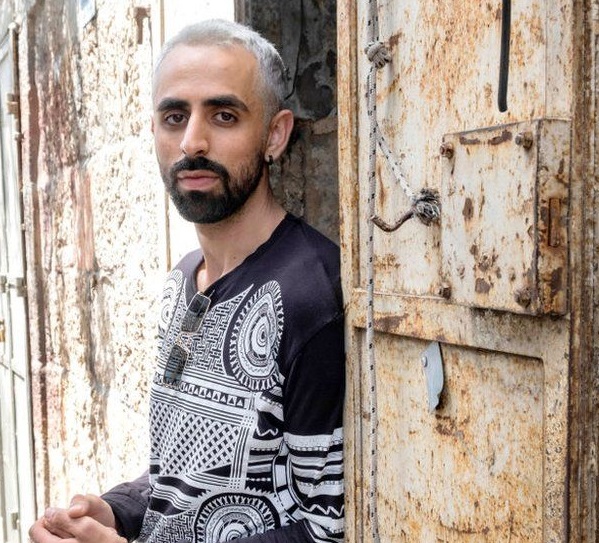

For his single "Ana Zalameh (I'm A Man)", Murad worked
together with the United Nations. The UN Women's “Men
and Women for Gender Equality Regional Programme”
produced the song which is about the developments of
gender roles in Palestine and told from the perspective
of a 10 years old boy.
LGBTQ Comedian: Coming Out to Your Muslim Family
Sexual Diversity in Islam
Breaking Fast: Movie About Gay Muslim and Ramadan
Romance
American Muslims More Accepting of LGBTQ Than White
Evangelicals
Video: What it's Like Being LGBTQ and Muslim
TED Talk: Brown, Queer, Trans, Muslim, Proud
LGBTQ in Islam
Growing Up Queer and Muslim Can Be Terrifying: That's
Why I'm Telling My Story
Video: Queer Arabs Share Their Stories
Muslim Alliance
for Sexual and Gender Diversity
PBS Video: Queer and Muslim in America
Candid Discussion 4: Extremely Queer Muslims
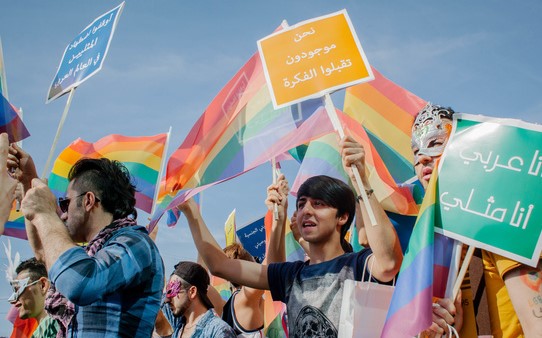
Gay-Friendly Arab Countries
My partner
and I would like to pass along to you some positive
examples of LGBTQ tolerance in the Middle East.
Being
openly gay in the Arab world is certainly not an easy
feat! If it doesn’t land you a jail sentence or the
capital punishment, the huge stigma attached to it will
likely compromise your job prospects, alienate your
family, or worse, make you the target of some pretty
nasty homophobic violent crimes. Despite being a very
difficult place in the world for the LGBTQ community,
there is a glimmer of hope for a better future. To be
clear, being gay is illegal and difficult in the Arab
countries! However, despite the negative press we hear
about gay rights in the Arab world, there does exist a
local LGBTQ community in each of these countries
fighting for recognition, acceptance and the basic
freedoms we take for granted.
We have traveled extensively around the Middle East as
a gay couple and overall had a positive experience. For
example, we climbed the world’s tallest building in
Dubai, got lost in the rich culture of Jerusalem,
wondered around the souks of Tunis, visited stunning
mosques in Abu Dhabi and even found a few gay clubs in
Beirut. Of course we were always cautious to avoid any
public displays of affection and only booked a double
bed in hotels we were certain are gay friendly. In
short, for our safety, we had to go back in the closet.
We would like to highlight the 5 most gay friendly Arab
countries based on our first hand experience and
research. This only relates to the 22 Arab countries
around the Middle East and North Africa, which are also
member states of the Arab League, therefore this does
not take into account Israel, Turkey and Iran.
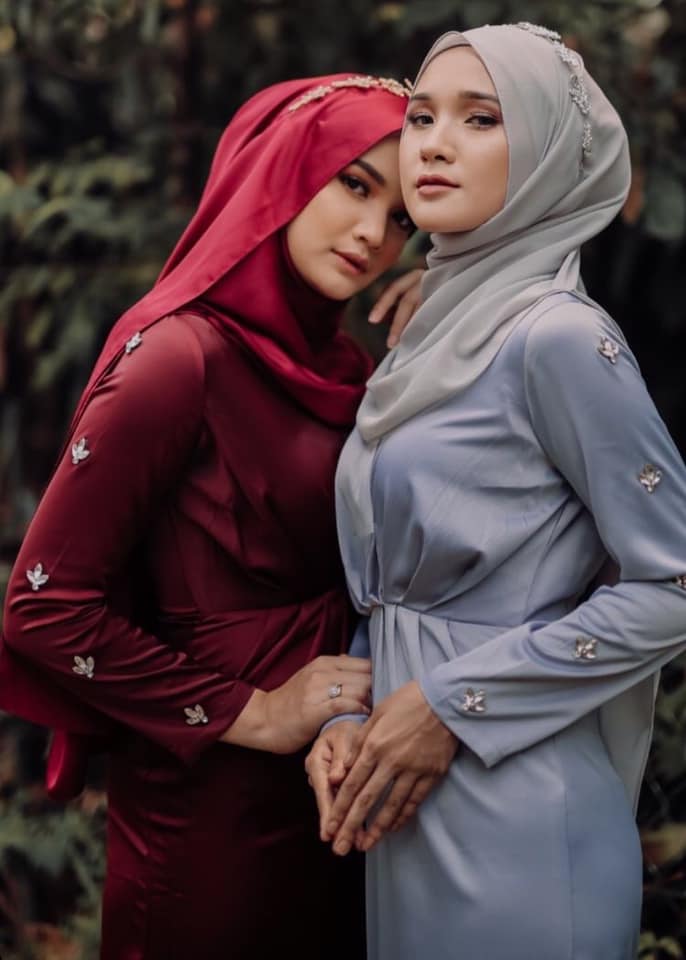

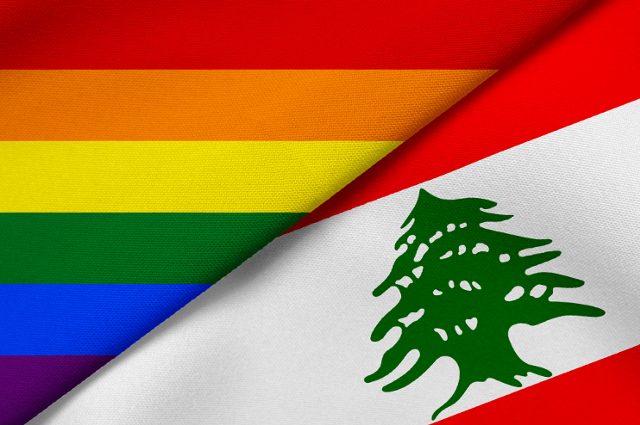
Pakistan’s First Trans TV News Anchor Marvia Malik
Survives Assassination Attempt
Married Lesbian Palestinian-Jewish Comedians
LGBTQ Afghans Face Surge of Rape and Torture after
Taliban Takeover
Saudi Arabia is Confiscating Rainbow-Colored Toys in
Anti-LGBTQ Crackdown
Will Humanitarian Aid Reach LGBTQ Afghans in Hiding?
Eternals Actor Haaz Sleiman: Being Arab and Openly Gay
Middle Eastern, North African LGBTQ Youth
Report High Risk of Suicide Attempts
Gay Afghan: The Taliban Killed My
Boyfriend
Virtual Death Sentence: Gay Afghans Brace for Uncertain
Future Under Taliban
Queer Muslims Safely Celebrating Ramadan Under Lockdown
Noor & Layla: Film Celebrating Queer
Muslim Love
Oman
While the Gulf States are notorious for having some of
the worst anti-gay laws in the world, Oman is another
(slightly) more tolerant haven in the region. Ask anyone
from the Middle East about gay Oman and they'll be quick
to tell you about the country's former gay Sultan! Yes,
Oman, a proud Islamic country, with clear laws outlawing
any forms of homosexuality, had a (supposed!) gay ruler:
Sultan Qaboos bin Said al Said. Sadly, as far as the
public press in Oman is concerned, this is just a rumor.
With regards to the gay scene of Oman, everything is
underground, as is the case with most Arab countries. We
advise using gay dating apps to connect with locals to
discover more. Due to the strong censorship laws, you
will need a decent VPN to do so.
On the face of it, homosexuality is very illegal in
Oman, punishable with a jail sentence of up to 3 years.
However, cases rarely get to court unless there is a
risk of a public scandal. In 2013, an article in an
Omani newspaper called, “The Week”, suggested Oman was
more tolerant about LGBTQ people compared to the other
Gulf states.
For the most part, Oman is a stunning country to visit.
It’s extremely wealthy, neutral in foreign relations,
which therefore makes it a very safe place to visit. The
majority of Omanis are well-educated, civilized and down
to earth, which makes being gay in Oman slightly easier
as long as you're discreet. That being said, the country
has very strict media censorship and a very influential
religious sect, so any obvious/open acts of
homosexuality will likely get you into trouble as was
the case with The Week newspaper.
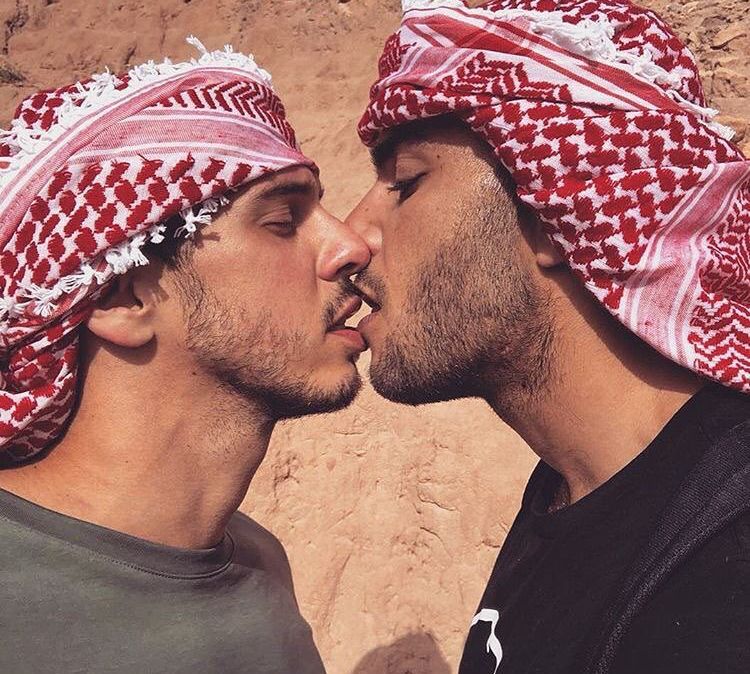
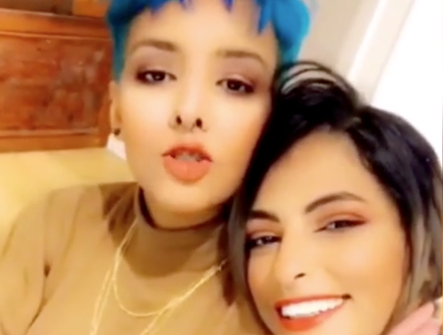
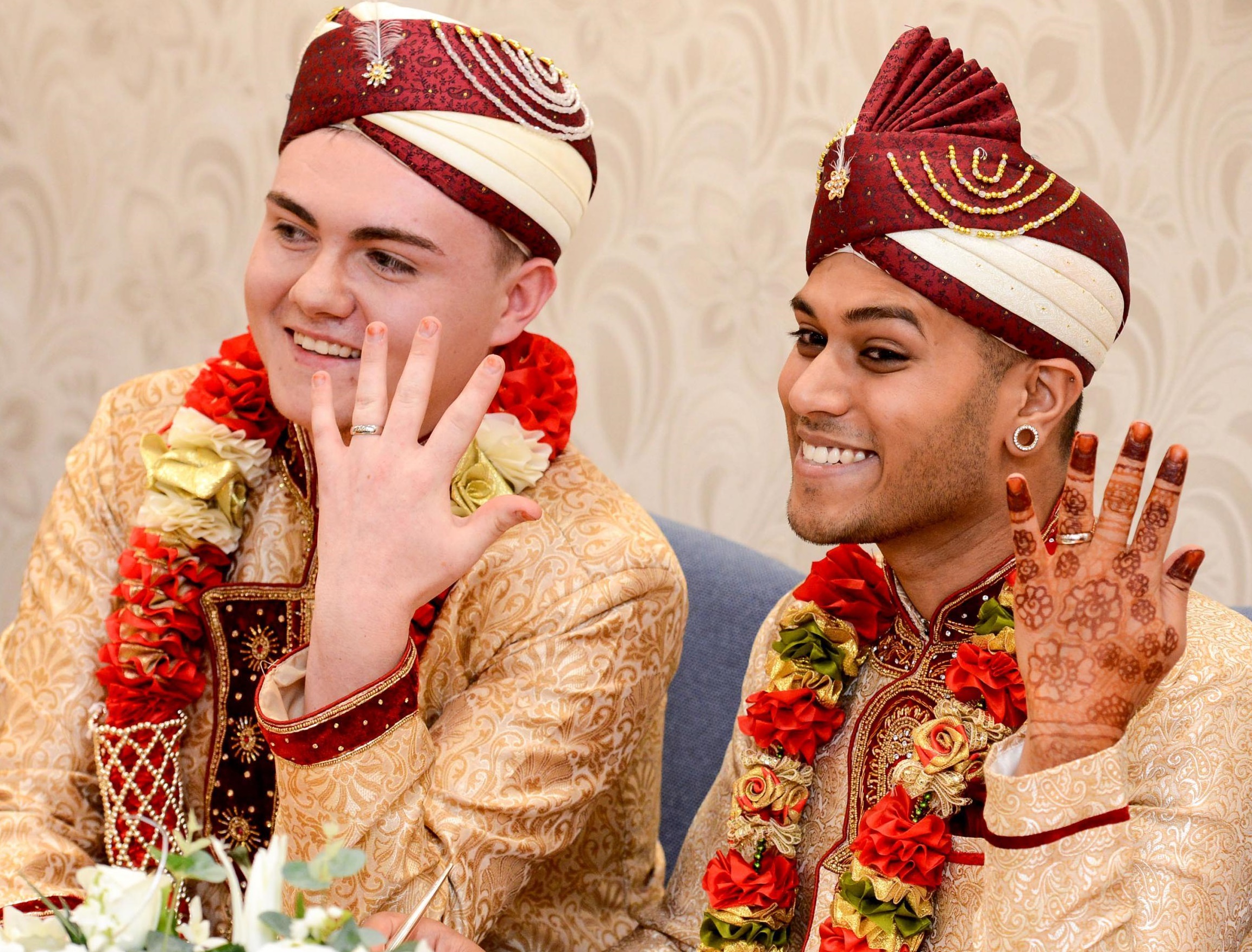
During Ramadan Month: Queer and
Transgender Muslims Made Their Own Community
Video: Queer Arabs Share Their Stories
Gay and Middle Eastern in Post-Orlando America
Saudi Arabian Lesbians
Declare Their Love on TV
Gay-Friendly Arab
Countries
Huge LGBTQ Pride Celebration in the Muslim World
LGBTQ Muslims Who Are Changing the World
A Place for LGBTQ Rights in the Arab World?
Ana Zalameh (I Am a Man) by Bashar Murad
What it's Like to be LGBTQ and Iranian
TV Star Bilal Baig on the Beautiful Blurriness of Queer
Love
Everything You Need to
Know About Being Gay in the Middle East
Bahrain
Bahrain is supposedly one of the most tolerant countries
in the Arab world. Being gay was legalized in 1976, but
if you're openly gay you may be prosecuted under laws
relating to “public morality”. In 2014 a High
Administrative Court ruled to allow 2 women to have a
gender reassignment surgery and be recognized as men
following their surgery. Bahrain is often considered to
be one of the most tolerant of the Gulf States, in
particular when compared to its giant neighbor, Saudi
Arabia. So much so, that the Saudis nickname Bahrain as
“the Bar” because it’s where they can easily drive to
for a weekend trip to buy alcohol and meet people
freely. In the media, homosexual issues were discussed
as early as 2001 in the Arabic language newspaper,
“Al-Meethaq” and subsequently in the English language
paper, “Gulf Daily News”.
On the face of it, like Jordan, Bahrain appears to be
another shining gay star in the Arab world, having
legalized homosexuality as early as 1976. It also has an
equal age of consent of 21 for both straight and gay
couples. Sadly, other sections of the Bahrain Penal Code
relating to “public immorality”, “public indecency” and
“immoral behavior” are used to crack down on the LGBTQ
community in much the same way as it has been used in
Jordan.
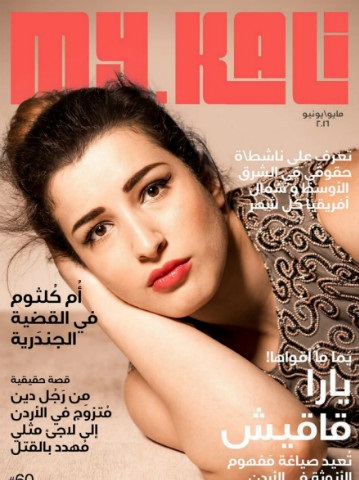
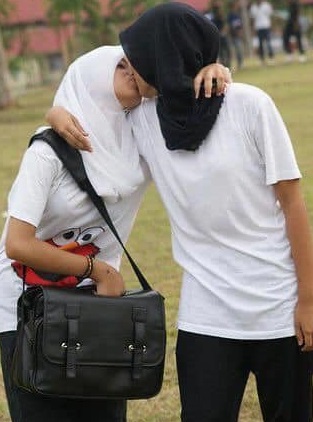
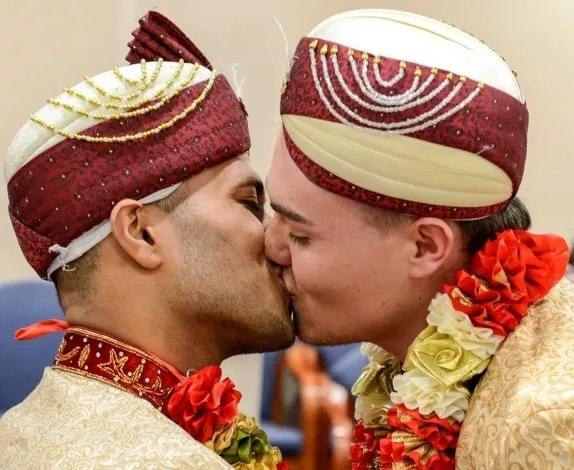
To Be Gay
and Muslim
Al Arabiya News
Muslim Alliance for
Sexual and Gender Diversity
Breaking Fast: Movie About Gay Muslim and Ramadan
Romance
Shireen and Atafeh
Pakistan’s First Trans TV News Anchor Marvia Malik
Survives Assassination Attempt
Candid Discussion 2: Extremely Queer Muslims
LGBTQ Arabs Who Are Getting Media Attention
LGBTQ Muslims Who Are Changing the World
Sexy Middle Eastern Men Strip Down for
Arab Heritage Month
A Place for LGBTQ Rights in the Arab World?
Guardian: Being a Gay Muslim
HRW: LGBTQ Activism in the Middle East
Growing Up Queer and Muslim Can Be Terrifying: That's
Why I'm Telling My Story
Jordan
We found Jordan to be one of the most gay friendly Arab
countries. Being gay was legalized in 1951, but if
you're openly gay you may be prosecuted under “public
morality” laws. the right to change legal gender
was allowed by the Cassation Court (Jordan's highest
Court) in 2014. However, in April 2018, Parliament
passed laws banning gender reassignment surgery. My.Kali:
the Arab world's first LGBTQ online magazine was created
in 2007 by handsome Jordanian model and activist, Khalid
Abdel-Hadi:
Jordan's draw as a huge tourism attraction in the Middle
East has helped bolster its gay credentials. So much so,
that LGBTQ tour companies often offer Jordan as an
add-on for holidays to Israel. In terms of public gay
events in Jordan, there have been several over the
years, mainly for the International Day Against
Homophobia, Transphobia and Biphobia. While there is no
obvious gay scene in Jordan, there is an underground
scene, which you're likely to discover by befriending
locals on Grindr. One well known gay friendly bar in
Amman is Books @ Cafe, which becomes a club on weekends.
On the one hand, Jordan appears to be one of the most
progressive LGBTQ countries in the world for the simple
reason that it decriminalized homosexuality in 1951,
nearly 2 decades before the UK! At the same time, it
also reduced the age of consensual relationships to 16,
which is the same for heterosexuals. Sadly, the
LGBTQ community is victimized and prosecuted under laws
relating to the disruption of “public morality”. For
example, in 2017 the Lebanese band Mashrou’ Leila was
banned from performing in Jordan by the Ministry of
Interior because their lead singer, Hamed Sino, is gay!
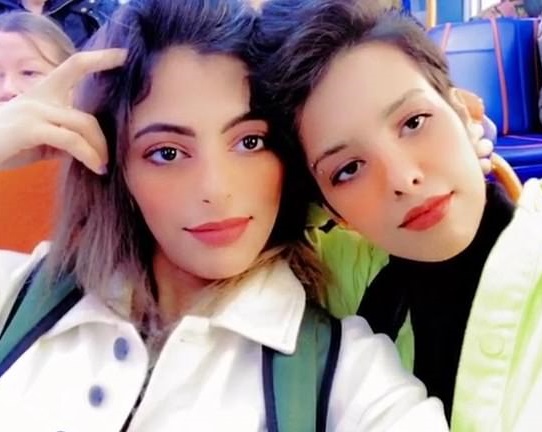
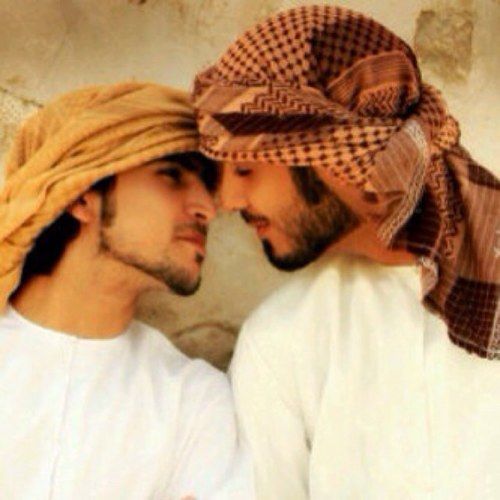
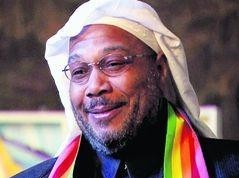
LGBTQ in the Middle East
Arab Weekly: For LGBTQ Arabs Change is Slow
Muslims for Progressive Values
Nadia: Interview With Lesbian Muslim
LGBTQ Comedian: Coming Out to Your Muslim Family
Muslim Alliance
for Sexual and Gender Diversity
Group Discussion: Islam and Homosexuality
Growing Up Queer and Muslim Can Be Terrifying: That's
Why I'm Telling My Story
TED Talk: Brown, Queer,
Trans, Muslim, Proud
Dalida: Salma Ya Salama
Bisexual Sufi: Fighting Prejudice
Video: What it's Like Being LGBTQ and Muslim
Tunisia
Tunisia has one of the highest rankings of LGBTQ
tolerance in all the Arab countries. Gayday Magazine was
launched in March 2011, became Tunisia's first online
LGBTQ magazine. Mounir Baatour is the first openly gay
man to run for president in a Muslim country. Tunisia is
the first country in the Arab world to have an LGBTQ
radio station (Shams
Rad).
Tunisia has gained a positive reputation amongst the
LGBTQ community of the Arab world, particularly due to
the strong activism of organizations like “Association
Shams” and “Mawjoudin”, who have been campaigning hard
for LGBTQ minorities rights. On 18 May 2015,
“Association Shams” even received government recognition
as an official organization. In terms of gay events in
Tunisia, small discreet Pride receptions have been taken
place in private, mainly in the capital, Tunis. Most
impressive is the Mawjoudin’s Queer Film Festival, which
successfully took place in January 2018. This was a big
deal because it was the first ever public film festival
in Tunisia to celebrate the country's LGBTQ community.
While homosexuality is illegal in Tunisia with up to 3
years imprisonment (Article 230 of the 1913 Penal Code),
activism is so strong that there are signs that this is
likely to change very soon. For example, in June 2018, a
government-sponsored committee called the Individual
Freedoms and Equality Committee (COLIBE), advised
President Essebsi to decriminalize homosexuality in
Tunisia. In addition, in April 2020, one gay marriage
was legally recognized in Tunisia for the first time.
Whilst gay marriage and homosexuality both remain
illegal in Tunisia, this is still a small win for the
Tunisian LGBTQ community. Sadly, until the anti-gay law
is overturned, the LGBTQ community will not only
continue to be arrested but also subjected to the awful
rectal probing “tests.”
HRW: LGBTQ Activism in the Middle East
LGBTQ in the Middle East
Arab Weekly: For LGBTQ Arabs Change is Slow
Pakistan’s First Trans TV News Anchor Marvia Malik
Survives Assassination Attempt
Muslims for Progressive Values
A Place for LGBTQ Rights in the Arab World?
Sexual Diversity in Islam
Social Stigma of Growing Up Queer and Arab
Candid Discussion 1: Extremely Queer Muslims
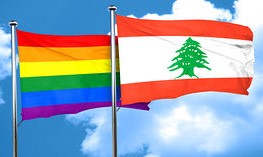
Lebannon
Beirut has one of the best gay scenes from all the Arab
countries. Homosexuality was declassified as an illness:
in 2013. the right to change legal gender was
introduced in 2016. When it comes to gay life in
the Arab world, Lebanon is the runaway winner in our
opinion. By Arab standards, you just can't beat the gay
scene of Beirut, which even has the largest gay club in
the Arab world, called POSH. Lebanon has many LGBTQ
movements like Helem and Meem, as well as and annual gay
events like the International Day Against Homophobia,
Transphobia and Biphobia. It even had a Beirut Pride
scheduled to take place in 2017 and subsequently in
2018. Sadly, both were either forced to proceed in
private, or cancelled due to pressure from radical
Islamists. On a positive note, future Beirut Pride
events are being planned.
Homosexuality is technically not illegal in Lebanon.
Article 534 of the 1943 Lebanese Penal Code, introduced
during the French Colonial years, outlaws all relations
that “contradict the laws of nature”, punishable by up
to one year in prison. Although there is no direct
reference to homosexuality in the Penal Code, Lebanese
judges since the 1940s have sadly interpreted these
Colonial laws as applying to homosexuals. Fortunately
for the LGBTQ community in Lebanon, Lebanese judges have
very recently started to pass rulings determining that
A.534 does not apply to homosexuality, thus paving the
way for decriminalization. In addition, Lebanese
politicians openly campaign for decriminalization of
homosexuality, which is a positive sign of changing
times. For more, check out our article about gay travel
in Lebanon.
[Source: Stefan Arestis, Nomadic Boys, Dec 2020]
LGBTQ Arabs Who Are Getting Media Attention
Everything You Need to
Know About Being Gay in the Middle East
Video: What it's Like Being LGBTQ and Muslim
Married Lesbian Palestinian-Jewish Comedians
Nadia: Interview With Lesbian Muslim
LGBTQ Muslims Who Are Changing the World
Guardian: Being a Gay Muslim
HRW: LGBTQ Activism in the Middle East
LGBTQ in the Middle East
Arab Weekly: For LGBTQ Arabs Change is Slow
Pakistan’s First Trans TV News Anchor Marvia Malik
Survives Assassination Attempt
Muslims for Progressive Values
A Place for LGBTQ Rights in the Arab World?
Sexual Diversity in Islam
Social Stigma of Growing Up Queer and Arab
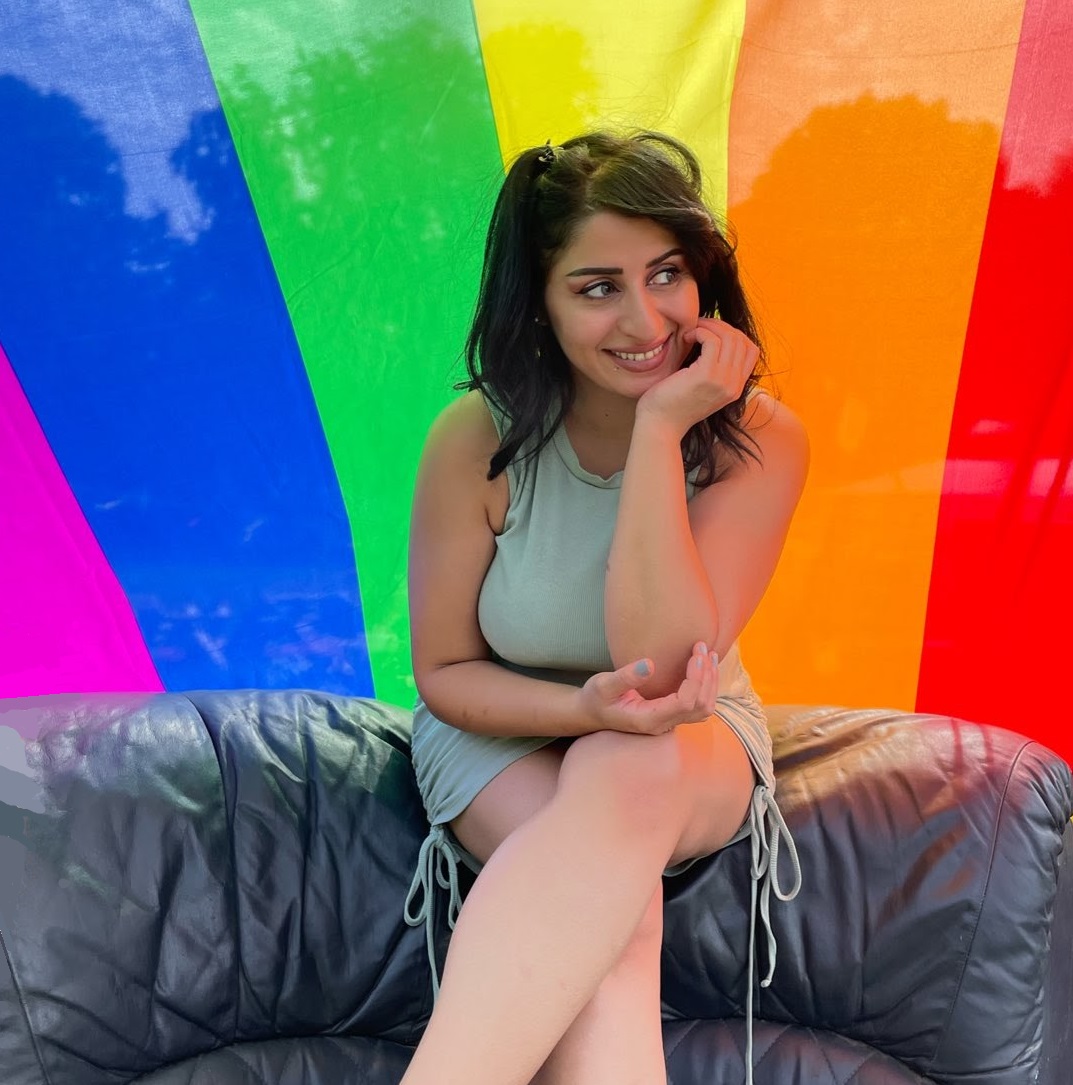
Saudi Arabia Calls
Homosexuality Extreme and Perverse
Saudi Arabia just called homosexuality a form of
“extremism.” Don’t expect Trump to respond. Donald Trump
has a long history of looking the other way whenever
Saudi Arabia commits human rights abuses. A video posted
on the Twitter account of Saudi Arabia’s state security
agency called feminism, homosexuality, and atheism
“unacceptable forms of extremism and perversion.”
Trump’s willingness to let the country get away with
human rights abuses empowered the country’s admission,
and he’s likely not to comment on it.
Homosexuality and atheism have long been illegal and
punishable by death in the absolute monarchy, where
public protests and political parties are banned and the
media is tightly controlled. And Trump greed has
repeatedly excused Saudi Arabia’s human rights abuses.
Trump said of the country and its rulers, “I get along
great with all of them. They buy apartments from me.
They spend $40 million, $50 million. Am I supposed to
dislike them? I like them very much.”
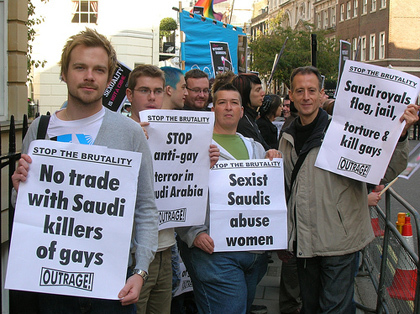
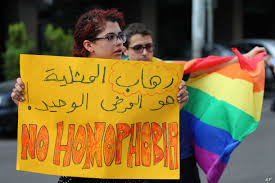
Saudi Arabia Calls Homosexuality Extreme and Perverse
Wikipedia: LGBTQ Rights in Saudi Arabia
Corporations Ignoring Saudi Arabia's Anti-LGBTQ Laws
Equaldex: LGBTQ Rights in Saudi Arabia
Trump’s first foreign
trip as president was to Saudi Arabia, and during the
trip he essentially said that the US would look the
other way on the country’s human rights abuses. “We are
not here to lecture,” Trump said. “We are not here to
tell other people how to live, what to do, who to be, or
how to worship.”
Trump’s son-in-law and senior White House adviser Jared
Kushner has “a very strong bond” with the country’s
crown prince, Mohammad bin Salman. So, even though the
CIA concluded with “high confidence” that bin Salman
ordered the brutal October 2018 murder of Washington
Post journalist Jamal Khashoggi, Trump said, “It could
very well be that the Crown Prince had knowledge of this
tragic event. Maybe he did and maybe he didn’t.”
Trump’s infamous “Muslim travel ban” omitted Saudi
Arabia, even though it’s a Muslim-majority country where
five of the 19 September 11 hijackers came from. His
pledge to decriminalize homosexuality internationally
also made no mention of Saudi Arabia’s grievous anti-LGBTQ
record.
Add to that the fact that the Trump administration
conflates anti-LGBTQ policies with “religious freedom”
and it’s easy to see how Trump has empowered Saudi
Arabia to admit its animus against women and queer
people despite the country’s claims to be “modernizing”
towards Western values.
[Source: By Daniel Villarreal, LGBTQ Nation, Reuters,
November 2019]
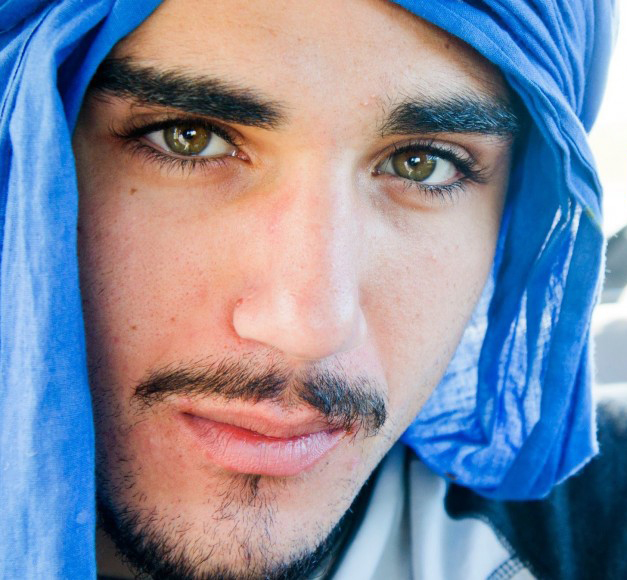 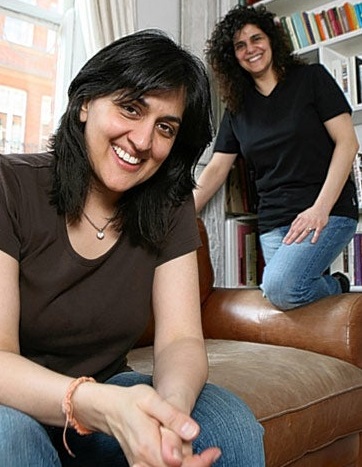
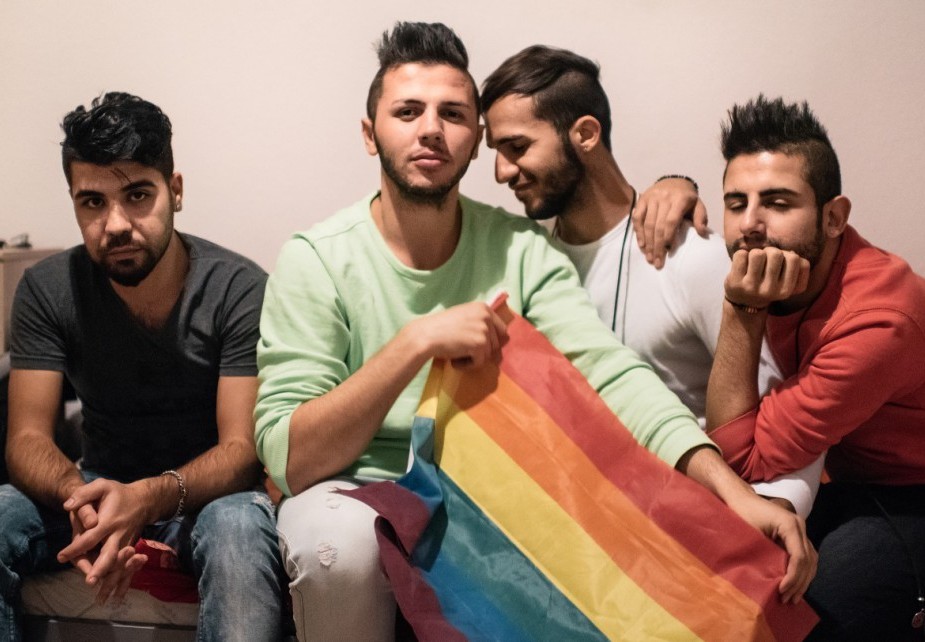
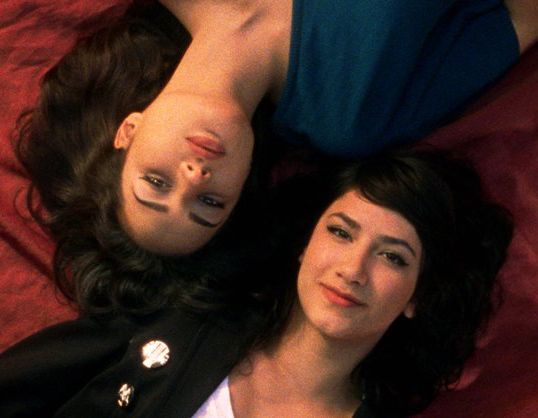
To Be Gay
and Muslim
Al Arabiya News
Growing Up Queer and Muslim Can Be Terrifying: That's
Why I'm Telling My Story
Breaking Fast: Movie About Gay Muslim and Ramadan
Romance
Shireen and Atafeh
Candid Discussion 1: Extremely Queer Muslims
Pakistan’s First Trans TV News Anchor Marvia Malik
Survives Assassination Attempt
Guardian: Being a Gay Muslim
Married Lesbian Palestinian-Jewish Comedians
HRW: LGBTQ Activism in the Middle East
Sexy Middle Eastern Men Strip Down for
Arab Heritage Month
LGBTQ Activism
in the Middle East
Despite
state-sponsored repression and social stigma, lesbian,
gay, bisexual, transgender, and queer (LGBTQ) people in
the Middle East and North Africa are finding ways to
speak out. They are telling their stories, building
alliances, networking across borders, developing
national and regional movements, and finding creative
ways to combat homophobia and transphobia.
Activists in the countries must contend with state
hostility, to varying degrees. Many governments in the
region reject the concepts of “sexual orientation” and
“gender identity” altogether. Faced with official
intransigence, some activists choose to work outside
state structures: their activism focuses on
community-building and attitudinal change. Others have
taken on their governments, successfully pushing for
incremental change in various forms. For example, in
Lebanon and Tunisia state institutions have accepted
calls to end forced anal examinations, after pressure
from local and international activists as well as treaty
bodies. Iraq has committed to address violence based on
sexual orientation and gender identity (SOGI-based
violence). In Lebanon courts have rejected an
interpretation of “unnatural offenses” as including
same-sex sexual acts (although the relevant court cases
have not created binding legal precedent). In Morocco
courts have convicted perpetrators of SOGI-based
violence.
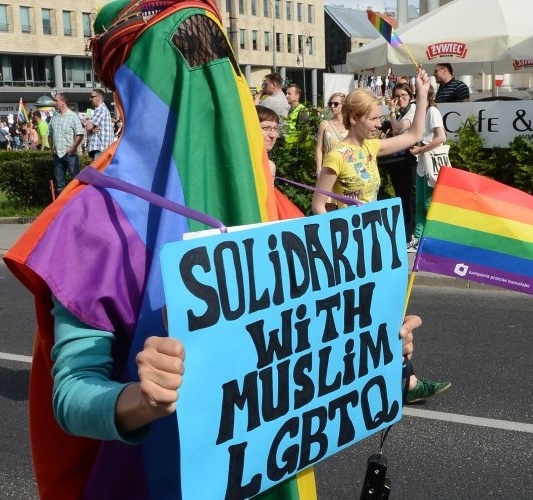
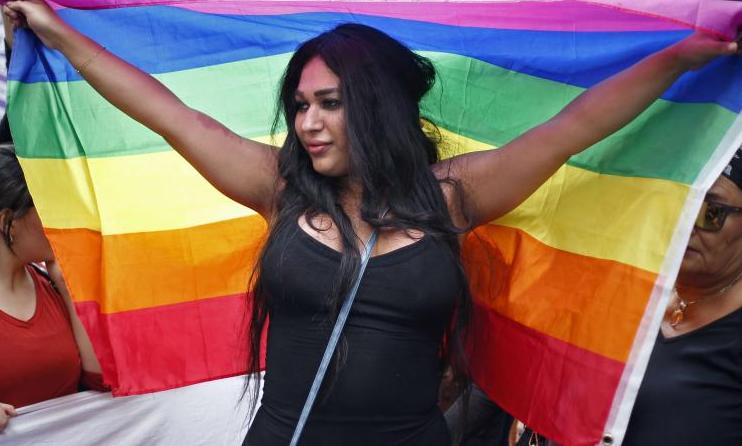
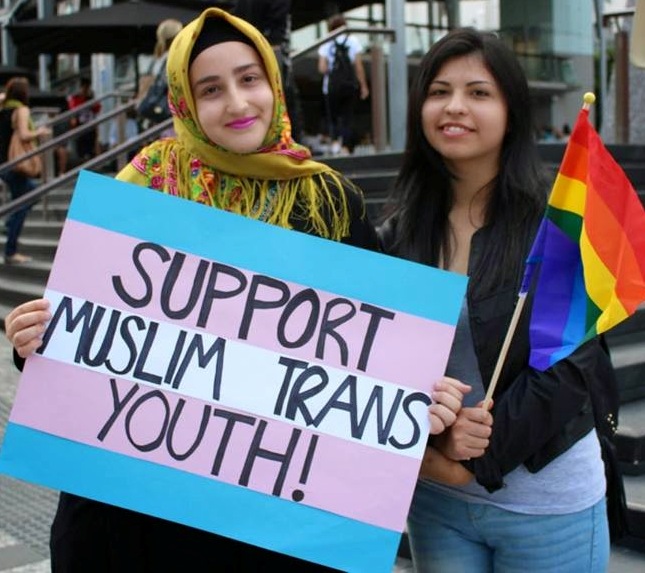
Progress can be painstakingly slow and marred by
setbacks. In September 2017, Egyptian security forces
went into overdrive, arresting dozens following the
display of a rainbow flag (a sign of solidarity with
LGBTQ people) at a concert. They relied on a
“debauchery” law that had been used in the early 2000s
against gay men and transgender women and was revived
with a vengeance following the 2013 coup, when the
government, led by President Abdel Fattah al-Sisi,
appeared to embrace persecution of gays and trans people
as a political strategy. Even by recent standards in
Egypt, the September crackdown (involving scores of
arrests, forced anal examinations, and a formal media
blackout on pro-LGBTQ speech) was severe. But activists
demonstrate creativity and dynamism even in such
challenging contexts, training LGBTQ people on how to
digitally protect themselves from police surveillance
and entrapment and galvanizing international pressure on
their government, a tool which they employ cautiously,
often reserving it for human rights emergencies.
[Source:
Human Rights Watch, Audacity in Adversity]
Video: Queer Arabs Share Their Stories
HRW: LGBTQ Activism in the Middle East
Gay-Friendly Arab
Countries
Social Stigma of Growing Up Queer and Arab
Queerty: LGBTQ Arab Activists Speaking Out
Global Citizen: Brave LGBTQ Arab Activists Challenging
the Stigma
Arab Weekly: For LGBTQ Arabs Change is Slow
Video Report: Being LGBTQ in the Islamic Republic of
Pakistan
Irshad Manji:
Arab Lesbian Author and Educator
Irshad
Manji is a Muslim Canadian author, educator, and
advocate of a reformist interpretation of Islam. Manji
is also a well-known critic of traditional mainstream
Islam. Manji has written several books, two of which
have been banned in Malaysia, both of which describe and
develop her philosophies. The banned books are The
Trouble with Islam Today and Allah, Liberty and
Love.
Manji, who
is a lesbian, is troubled by how Islam is practiced
today and by the Arab influence on Islam that took away
women's individuality and introduced the concept of
group honour. In here books, Manji shows how to
reconcile faith and freedom in a world seething with
repressive dogmas. Manji’s key teaching is "moral
courage," the willingness to speak up when everyone else
wants to shut you up.
She married her partner, Laura Albano, in May 2016.
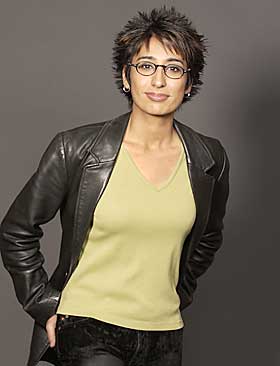
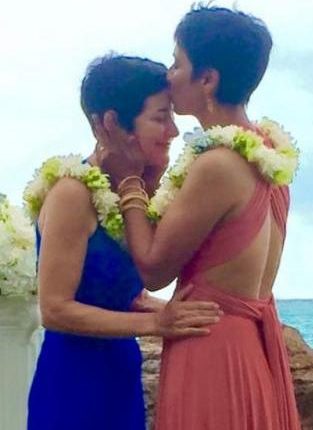
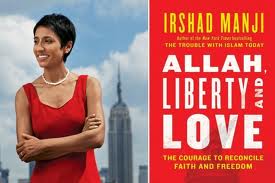
Helpful Books on
the Subject
Allah,
Liberty and Love by Irshad Manji
The
Trouble with Islam Today by Irshad Manji
The Queer
Arab Glossary by Marwan Kaabour
This Arab Is Queer: An Anthology by LGBTQ Arab Writers
by Elias Jahshan (Editor)
Queer Palestine and the Empire of Critique by Sa'ed
Atshan
Between Banat: Queer Arab Critique and Transnational
Arab Archives by Mejdulene Bernard Shomali
El Ghourabaa: A Queer and Trans Collection of Oddities
by Eli Tareq El Bechelany-Lynch (Editor), Samia Marshy
(Editor)
Dating Gay
Arabs by Khalid Al-Suwaidi
The Caged
Virgin: An Emancipation Proclamation for Women and Islam
by Ayaan Hirsi Ali
Unspeakable Love: Gay and
Lesbian Life in the Middle East by Brian Whitaker
L’Armée du Salut
(Salvation Army) by Abdellah Taia
Homosexuality in Islam by Scott Siraj al-Haqq Kugle
Gay
Travels in the Muslim World by Michael Luongo
Video: Queer Arabs Share Their Stories
Gay and Middle Eastern in Post-Orlando America
Nadia: Interview With Lesbian Muslim
What it's Like to be LGBTQ and Iranian
Growing Up Queer and Muslim Can Be Terrifying: That's
Why I'm Telling My Story
PBS Video: Queer and Muslim in America
Huge LGBTQ Pride Celebration in the Muslim World
Group Discussion: Being Gay and Muslim
Everything You Need to
Know About Being Gay in the Middle East
Video: What it's Like Being LGBTQ and Muslim
Sexual Diversity in Islam
Social Stigma of Growing Up Queer and Arab
HOME
QUEER CAFE
│ LGBTQ Information Network │ Established 2017 |